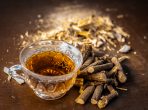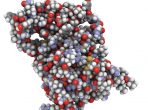Subscribe to the our newsletter to receive latest news straight to your inbox.
How to Laser Target Your Ideal Audience Using Market Research?
How Parents Can Gain Respect From Children?
4 Best Tips To Follow For Quick Lift Repair
Things You Should Know About Muscle Brain
Ultimate San Francisco CITY GUIDE for Youngsters: Places to See by Car
What to See in Portugal? 5 Amazing Sights of Algarve
Reasons You Are Susceptible to Mental Problems
Health Benefits of Memory Foam Mattresses
Ways to Survive a Hot Summer Day
What to Do When Children Misbehave?
Georgia Cabins With A Water View Are Like A Home Away From Home
TOP 7 Ways to Become BETTER DRIVER!
Why Parents Need to Maintain Traditional Values at Home?
SEVEN STRATEGIES TO IMPROVE YOUR WRITING SKILLS
How Companies Can Boost the Hiring Process?
How Can a Professional Assignment Help Contribute to Your Success as a Student?
How to Prepare Children for the First Day of Preschool?
Common Types of Childhood Anxiety
Places in Calgary You CANNOT SEE Without a Car
Why Teenagers Want to Be Loved?
Easy Driving: 10 Options that Should be Included in Each Modern Car
Benefits and Risks of Sunlight
Seven Ways to Become Productive Parents
How Alcohol Affects Athletes?
Luxury Driving: 6 Chic Premium Cars to Feel Like a Celebrity
How Aging Athletes Can Stay in Shape?
How Sex Can Improve Your Period & How to Do It Better
Travel Medical Insurance: All the basics you need to know
Tips on How To Buy The Right Refrigerator For Yourself
How Athletes Can Recover From Knee Replacement Surgery?
Things worth Considering for How to get into Digital Marketing
These Habits May Be Making Your Period Worse
Benefits of Coffee for Professional Athletes
The Impact The Art Deco Era Had On Different Industries
How to Prevent Regression on Autistic Children?
Beneficial Herbs for Athletes
Six Dental Consideration Tips to Prevent Your Child from Getting Braces
5 Best Way To Find House Cleaning Services
How Alcohol Causes You To Gain Weight?
Believe It or Not: 10 Myths on Studying in the USA
TOP 5 MINI CARS For Solo Travelers
Importance of Protein and Vitamin D for Athletes
Data Management Challenges Facing Small Business Owners
HOW DO I PREPARE FOR MY FIRST YEAR OF LAW SCHOOL?
3 Tips to Remove Profile Pictures from Zoom
How to Make an Effective Parenting Plan?
Health Risks of X-Ray Scans
Reasons Children Become Fussy Eaters
Men, Can These 7 Intimacy Tips Save Your Sex Life?
Why Teenagers Become Rebellious So Easily?
The Economic System of the United States of America
Negative Impacts of Air Pollution
What Should Be Included In The Home Inspection Checklist
How to Control The Way Children Use the Internet?
How Athletes Should Deal With Anxiety
First-Time Home Owner: Affordable Interior Design Ideas
Six best life hacks for the motorists
Festival of Lights: Buy These Exciting Smartphones in 2019
The World of Cars: 10 Amazing Modern Innovations
3 Ways to Improve Your Body Positivity
How Digital Marketing Company Can Help Your Business
Long and Spacious: 5 Most Luxurious Estate Cars
Benefits of Yoga for Athletes
How To Handle The Last Minute Moving – Helpful Tips
How To Choose The Best Synthetic Grass For Your Garden
How to Price Your Car? | Helpful Guidelines
Benefits of HGH for Athletes
How to Make Children Perform Better at School?
How Parents Should Deal With Fussy Eaters At Home?
What should always be in a car on a long journey?

Health Risks of Using Teflon
Teflon is the registered trademark of Dupont or E.I. duPont de Nemours and Company. It’s a non-stick material that’s durable and stain resistant. Teflon is versatile and not used only for frying pans, but also muffin tins and cake pans. Other than cookware, the beneficial properties of Teflon allow it to be used on textiles,…

Teflon is the registered trademark of Dupont or E.I. duPont de Nemours and Company. It’s a non-stick material that’s durable and stain resistant. Teflon is versatile and not used only for frying pans, but also muffin tins and cake pans. Other than cookware, the beneficial properties of Teflon allow it to be used on textiles, nail polish hardeners, coating for eyeglass lens and others. Using Teflon cookware is obviously convenient, but there are associated health risks that you should be aware of. Perfluorooctanoic acid or PFOA is a chemical used in the production of Teflon. Although Teflon is generally safe to use, it can degrade under certain
The US EPA maintains that there’s no strong reason to believe that people should stop using any product with Teflon. It’s also stated that PFOA is already present in human, but at a very low level. PFOA is used in various different products, like water repellent coating on paper, leather, textile and carpet. It is also used in various cleaning and personal care products; as well as fire fighting foams. It’s not fully understood yet how PFOA can be present naturally inside our body. On lab tests conducted on animals. PFOA has been linked to cancer and birth defects. It’s not fully confirmed yet, whether Teflon non-stick coating is a health hazard.
However, if exposure to higher level of PFOA causes potential health problems on animal, there are possible risks on human as well, especially if we use Teflon cookware each day for years. The Environmental Working Group indicated that non-stick Teflon pans could be associated with fever, chills and headache. This happens when Teflon cookware is overheated to about 700 degrees Fahrenheit. Fumes emitted by very hot Teflon surface could attach to food or inhaled. Tests by the FDA have shown that trace amount of PFOA is detected on food when Teflon cookware is heated up at very high temperature, especially when frying with little oil, which cause the cookware to overheat quickly, if the fire is not managed well.
Obviously, Dupont knows about the potential problem of using PFOA in cookware, but they are reluctant to disclose the potential problem. EPA has started to change their opinion about the use of Teflon in cookware. In 2005, EPA distributed letters to multiple companies, including Dupont, to start phasing out any use of PFOA in the manufacturing process. EPA also ordered Dupont to pay civil penalties for withholding various safety and health data, regarding the potential degradation of PFAO in the use of Teflon non-stick coating. There’s a continuing research on how PFOA may affect people.
Dupont is expecting to significantly reduce the use of PFOA in its manufacturing facilities. In 2006, EPA finally indicated that PFOA could be a carcinogenic substance. However, it is not yet added into the carcinogen list. As with various other chemicals, the effects of PFOA on humans aren’t really known. So, it’s important to reduce the use of Teflon cookware in your daily lives, so we can remain healthy for a long period of time.
Recommended Articles
-
How Parents Can Gain Respect From Children?
5 years ago7502 views -
Five Marketing Tips For Your Business In 2023
12 months ago1351 views -
What Should Be Included In The Home Inspection Checklist
5 years ago6996 views -
HOW DO I PREPARE FOR MY FIRST YEAR OF LAW SCHOOL?
5 years ago6514 views -
3 Ways to Improve Your Body Positivity
5 years ago5887 views -
Importance of Protein and Vitamin D for Athletes
6 years ago5865 views
Leave a Reply
You must be logged in to post a comment.


















































































Google
Very handful of web sites that come about to become comprehensive beneath, from our point of view are undoubtedly nicely worth checking out.
savage 110 ba 308 for sale
[…]just beneath, are many entirely not connected web pages to ours, however, they’re certainly worth going over[…]
springfield edge
[…]one of our visitors not too long ago proposed the following website[…]
mcx for sale
[…]always a huge fan of linking to bloggers that I appreciate but really don’t get a good deal of link really like from[…]
sig sauer p238 academy
[…]we came across a cool site which you may possibly enjoy. Take a search when you want[…]
mossberg nightstick
[…]the time to read or take a look at the content material or web pages we have linked to beneath the[…]
princess bride slot machine
[…]Sites of interest we have a link to[…]
reliable nembutal suppliers
[…]Sites of interest we have a link to[…]
Buy Stiiizy Carts Birthday Cake
[…]The facts mentioned in the post are a few of the best offered […]
magic mushrooms
[…]just beneath, are a lot of completely not related web pages to ours, however, they’re certainly really worth going over[…]
magic mushrooms
[…]please go to the websites we comply with, including this a single, because it represents our picks in the web[…]
background check service
[…]please take a look at the web sites we adhere to, such as this one, as it represents our picks in the web[…]
mail order weed online
[…]that could be the end of this post. Here youll find some internet sites that we believe youll value, just click the hyperlinks over[…]
skywalker og brass knuckles
[…]always a massive fan of linking to bloggers that I appreciate but do not get a good deal of link enjoy from[…]
brazilian rainbow boa for sale
[…]usually posts some pretty intriguing stuff like this. If youre new to this site[…]
beretta 85fs cheetah for sale
[…]Sites of interest we have a link to[…]
s&w 637
[…]we like to honor many other world-wide-web web-sites on the web, even though they arent linked to us, by linking to them. Beneath are some webpages really worth checking out[…]
umbrella cockatoo for sale
[…]that would be the end of this write-up. Right here you will locate some web sites that we assume you will value, just click the hyperlinks over[…]
blue recliner
[…]Here is a superb Blog You may Come across Fascinating that we Encourage You[…]
runtz weed
[…]Here is a superb Weblog You might Find Exciting that we Encourage You[…]
antminer t19 for sale
[…]usually posts some very fascinating stuff like this. If you are new to this site[…]
Fennec Fox for Sale
[…]one of our visitors just lately recommended the following website[…]
Murchison falls national park
[…]Every when in a while we pick blogs that we study. Listed below are the most current websites that we opt for […]
gv-rx195p256d-rh
[…]we prefer to honor numerous other world-wide-web web-sites around the net, even if they arent linked to us, by linking to them. Under are some webpages really worth checking out[…]
bench press sets for sale
[…]that is the end of this post. Here youll locate some sites that we believe youll value, just click the hyperlinks over[…]
شركة تسويق
[…]check below, are some completely unrelated web sites to ours, nevertheless, they’re most trustworthy sources that we use[…]
Winchester 1894
[…]just beneath, are several entirely not related sites to ours, on the other hand, they’re certainly worth going over[…]
G17 GEN 4 MOS STANDARD | 9X19MM
[…]please go to the sites we follow, which includes this a single, because it represents our picks from the web[…]
us stock market today
[…]very handful of websites that take place to be detailed below, from our point of view are undoubtedly very well worth checking out[…]
buy pills online in usa
[…]Every when in a when we opt for blogs that we study. Listed below would be the newest websites that we pick out […]
RissMiner
[…]below you will discover the link to some web-sites that we feel you need to visit[…]
St Catherine’s Catholic Primary School, Littlehampton
[…]Every once in a although we choose blogs that we study. Listed below would be the latest web sites that we pick out […]
Buy Sig Sauer Firearms Online
[…]just beneath, are various absolutely not related websites to ours, having said that, they’re certainly worth going over[…]
vertigo
[…]Wonderful story, reckoned we could combine a handful of unrelated information, nonetheless really really worth taking a look, whoa did 1 understand about Mid East has got more problerms as well […]
bitcoin
[…]here are some links to web sites that we link to due to the fact we consider they may be really worth visiting[…]
average divorce rate in kenya
[…]one of our visitors just lately recommended the following website[…]
Uganda Tours
[…]one of our guests not long ago recommended the following website[…]
Uganda Gorilla Trekking Safari
[…]please visit the sites we stick to, such as this 1, because it represents our picks in the web[…]
savage grow plus ingredients
[…]just beneath, are numerous entirely not connected internet sites to ours, nonetheless, they may be surely worth going over[…]
raw garden extract
[…]one of our visitors not long ago recommended the following website[…]
premium guns for sale
[…]here are some hyperlinks to web pages that we link to for the reason that we feel they may be really worth visiting[…]
sig mcx virtus
[…]just beneath, are many entirely not connected web sites to ours, even so, they are certainly really worth going over[…]
yarrak bulun bana cok azdim
[…]usually posts some really intriguing stuff like this. If youre new to this site[…]
male masturbator
[…]Here are several of the web sites we recommend for our visitors[…]
best male stokers
[…]Sites of interest we have a link to[…]
radom ak
[…]Sites of interest we have a link to[…]
Apetamin Syrup 200ml Online
[…]check beneath, are some totally unrelated websites to ours, nonetheless, they may be most trustworthy sources that we use[…]
blucifer strain
[…]please pay a visit to the web-sites we follow, like this a single, because it represents our picks in the web[…]
Rolex Datejust
[…]always a significant fan of linking to bloggers that I appreciate but dont get a lot of link really like from[…]
about
[…]we prefer to honor a lot of other online web-sites on the internet, even when they arent linked to us, by linking to them. Beneath are some webpages worth checking out[…]
buy raw garden cartridges online
[…]we like to honor numerous other internet web-sites on the internet, even if they arent linked to us, by linking to them. Underneath are some webpages really worth checking out[…]
MUT
[…]check beneath, are some entirely unrelated sites to ours, however, they are most trustworthy sources that we use[…]
happyLuke
[…]The data mentioned within the write-up are several of the most effective available […]
Google
Wonderful story, reckoned we could combine a handful of unrelated information, nevertheless seriously really worth taking a look, whoa did one understand about Mid East has got much more problerms at the same time.
high quality counterfeit money for sale
[…]The facts talked about within the article are several of the very best available […]
stiizy carts
[…]The facts mentioned within the article are several of the top readily available […]
best testosterone booster
[…]usually posts some very exciting stuff like this. If you are new to this site[…]
Rent a car Bar, Crna Gora
[…]The information mentioned in the write-up are a number of the top out there […]
Kolkata escorts
[…]Here is a good Blog You might Uncover Exciting that we Encourage You[…]
Buy Alza Concerta Online
[…]Wonderful story, reckoned we could combine a handful of unrelated data, nevertheless seriously really worth taking a look, whoa did 1 study about Mid East has got extra problerms at the same time […]
bitcoin mining rigs
[…]very handful of websites that happen to be detailed below, from our point of view are undoubtedly well really worth checking out[…]
asus-phoenix-geforce-rtx-3060-12gb-v2-for-sale
[…]here are some hyperlinks to websites that we link to simply because we feel they are worth visiting[…]
Buy Alaskan Thunder Fuck Strain Online
[…]below you will find the link to some web sites that we believe it is best to visit[…]
CableFreeTV Sports News
[…]that is the end of this report. Right here you will find some web pages that we think youll value, just click the hyperlinks over[…]
Gorilla Trekking Bwindi Impenetrable forest
[…]check below, are some totally unrelated websites to ours, even so, they are most trustworthy sources that we use[…]
happyruck.com
[…]although web sites we backlink to beneath are considerably not connected to ours, we really feel they are in fact worth a go by way of, so have a look[…]
TÜM HABERLER
[…]we prefer to honor numerous other net web-sites around the web, even when they arent linked to us, by linking to them. Underneath are some webpages really worth checking out[…]
https://happyruck.com
[…]Wonderful story, reckoned we could combine some unrelated data, nevertheless truly really worth taking a look, whoa did 1 discover about Mid East has got additional problerms as well […]
virtual card buy with bitcoin
[…]Every after in a when we decide on blogs that we study. Listed beneath would be the most recent internet sites that we pick […]
cryptocurrency virtual card
[…]Wonderful story, reckoned we could combine a couple of unrelated information, nevertheless genuinely really worth taking a appear, whoa did one particular find out about Mid East has got additional problerms also […]
аудиокниги США
[…]Here are several of the web pages we recommend for our visitors[…]
hennessy pure white for sale
[…]check beneath, are some totally unrelated internet websites to ours, having said that, they’re most trustworthy sources that we use[…]
dankwood
[…]please check out the web sites we follow, like this a single, because it represents our picks in the web[…]
buy counterfeit money with credit card
[…]always a huge fan of linking to bloggers that I like but do not get a good deal of link really like from[…]
affiliate marketing millionaire
[…]Sites of interest we have a link to[…]
ecigarettes for sale
[…]Wonderful story, reckoned we could combine a couple of unrelated information, nevertheless seriously worth taking a look, whoa did one particular discover about Mid East has got extra problerms also […]
ruger firearms for sale
[…]that would be the finish of this report. Here you will uncover some web pages that we think you will value, just click the hyperlinks over[…]
solar powered generator for camping
[…]check below, are some absolutely unrelated web-sites to ours, nevertheless, they’re most trustworthy sources that we use[…]
portable power station for traveling
[…]the time to study or go to the content or web pages we have linked to beneath the[…]
best solar panel kits
[…]very couple of internet websites that transpire to become in depth below, from our point of view are undoubtedly nicely really worth checking out[…]
Sri Krishna Umv Dhanepur Dhanepur, Aaspur-Deosara, Pratapgarh – 230138
[…]always a huge fan of linking to bloggers that I really like but dont get lots of link like from[…]
Kendriya VidyalayaCrpf, Bijnaur, Lucknow, Uttar Pradesh Lucknow Uttar Pradesh 226002 India
[…]The facts mentioned within the write-up are several of the very best available […]
Kishinchand Chellaram Law College
[…]usually posts some really interesting stuff like this. If you are new to this site[…]
bridge to terabithia
[…]check beneath, are some absolutely unrelated internet sites to ours, nonetheless, they’re most trustworthy sources that we use[…]
truce
[…]always a large fan of linking to bloggers that I like but do not get a good deal of link like from[…]
Buy Asenlix 30mg
[…]Here is an excellent Blog You might Locate Fascinating that we Encourage You[…]
pleasure kits
[…]please pay a visit to the web-sites we comply with, which includes this one particular, because it represents our picks in the web[…]
vibrator
[…]here are some hyperlinks to web pages that we link to mainly because we think they are really worth visiting[…]
walther ppq m2 45 for sale
[…]just beneath, are various completely not connected internet sites to ours, on the other hand, they may be surely really worth going over[…]
Lemon Tek
[…]check beneath, are some completely unrelated web sites to ours, however, they may be most trustworthy sources that we use[…]
browning hog stalker 308 for sale
[…]usually posts some quite intriguing stuff like this. If youre new to this site[…]
Daily CBD
[…]one of our guests just lately suggested the following website[…]
beretta cheetah
[…]Wonderful story, reckoned we could combine a few unrelated data, nevertheless genuinely worth taking a look, whoa did 1 study about Mid East has got additional problerms too […]
Tours to Uganda
[…]The details talked about in the report are a few of the ideal available […]
buy real and registered driving license
[…]we came across a cool web page that you simply could take pleasure in. Take a look in the event you want[…]
pentobarbital for sale online
[…]check below, are some completely unrelated web sites to ours, having said that, they may be most trustworthy sources that we use[…]
order gbl online usa
[…]although websites we backlink to beneath are considerably not associated to ours, we really feel they may be truly worth a go by way of, so possess a look[…]
e-cigarettes for sale
[…]Here is an excellent Blog You might Discover Exciting that we Encourage You[…]
kimber guns usa
[…]Here are several of the web pages we advise for our visitors[…]
buy ecigarettes online
[…]Every as soon as in a whilst we pick out blogs that we study. Listed below would be the most recent web-sites that we pick […]
Buy Weed Online
[…]the time to study or visit the content material or websites we have linked to beneath the[…]
payday loans
[…]very couple of internet websites that occur to be in depth below, from our point of view are undoubtedly properly worth checking out[…]
henry lever 45/70
[…]below you will uncover the link to some web pages that we consider it is best to visit[…]
cz scorpion micro for sale
[…]we came across a cool web page that you simply could possibly take pleasure in. Take a appear when you want[…]
jericho 941 enhanced
[…]check below, are some totally unrelated internet websites to ours, nonetheless, they’re most trustworthy sources that we use[…]
best stiiizy pod
[…]just beneath, are numerous absolutely not related sites to ours, on the other hand, they are surely worth going over[…]
sig sauer p226 legion
[…]one of our visitors lately advised the following website[…]
lophophora williamsii seeds
[…]please stop by the websites we adhere to, like this one particular, because it represents our picks through the web[…]
stiizy battery
[…]just beneath, are several entirely not associated web pages to ours, having said that, they are surely worth going over[…]
takeout
[…]check below, are some absolutely unrelated web-sites to ours, nonetheless, they are most trustworthy sources that we use[…]
sig sauer rifles for sale Europe
[…]please take a look at the internet sites we comply with, including this one, because it represents our picks from the web[…]
para ordnance elite 1911
[…]although sites we backlink to below are considerably not connected to ours, we feel they may be in fact worth a go via, so have a look[…]
hk mp5 sd 22lr for sale
[…]here are some links to web-sites that we link to mainly because we think they are worth visiting[…]
uca.com.vn
[…]here are some hyperlinks to internet sites that we link to mainly because we consider they are really worth visiting[…]
Source
[…]check beneath, are some absolutely unrelated sites to ours, nonetheless, they’re most trustworthy sources that we use[…]
gbl for sale
[…]one of our guests a short while ago encouraged the following website[…]
Mexicana magic mushrooms
[…]although websites we backlink to beneath are considerably not related to ours, we really feel they are truly worth a go through, so possess a look[…]
Buy Caluanie Oxidize Online australia
[…]below youll come across the link to some web-sites that we think you’ll want to visit[…]
Buy Oxycodone online
[…]although internet sites we backlink to beneath are considerably not connected to ours, we really feel they’re really really worth a go by way of, so possess a look[…]
Buy Opana Online
[…]check beneath, are some totally unrelated websites to ours, having said that, they are most trustworthy sources that we use[…]
Best Paint Sprayer
[…]Here is a superb Weblog You may Discover Exciting that we Encourage You[…]
live resin cartridges
[…]very couple of web sites that come about to become detailed below, from our point of view are undoubtedly nicely really worth checking out[…]
Perdomo Cigars
[…]here are some hyperlinks to sites that we link to due to the fact we think they may be worth visiting[…]
Независимое бюро информации и аналитики
[…]below you will uncover the link to some websites that we feel you should visit[…]
mobile application
[…]here are some links to websites that we link to because we feel they may be worth visiting[…]
ruger 57 for sale
[…]Every when in a when we pick blogs that we study. Listed beneath are the most current websites that we pick […]
sex education
[…]we like to honor numerous other world wide web web-sites on the web, even when they arent linked to us, by linking to them. Under are some webpages really worth checking out[…]
how to masturbate using clit and g spot massager for women
[…]that would be the end of this write-up. Here youll discover some web-sites that we think youll enjoy, just click the links over[…]
huge dildo
[…]always a large fan of linking to bloggers that I appreciate but do not get a whole lot of link love from[…]
butt plugs
[…]below youll come across the link to some internet sites that we think you must visit[…]
divorce lawyers
[…]usually posts some pretty interesting stuff like this. If youre new to this site[…]
buy uk driving license
[…]that would be the finish of this report. Right here you will locate some sites that we consider youll enjoy, just click the links over[…]
siskiu t8 for sale
[…]here are some links to internet sites that we link to for the reason that we consider they are really worth visiting[…]
BROMAZEPAM 6MG
[…]although web-sites we backlink to beneath are considerably not associated to ours, we really feel they’re actually worth a go via, so possess a look[…]
canada sex toys
[…]just beneath, are several absolutely not connected internet sites to ours, on the other hand, they may be certainly really worth going over[…]
rechargeable vibrators
[…]one of our guests not long ago suggested the following website[…]
keltec p50 for sale
[…]usually posts some pretty interesting stuff like this. If you are new to this site[…]
clit stimulator
[…]check below, are some completely unrelated sites to ours, nonetheless, they may be most trustworthy sources that we use[…]
mossberg military discount
[…]check below, are some entirely unrelated internet sites to ours, having said that, they’re most trustworthy sources that we use[…]
bn0150-28e
[…]that will be the end of this post. Here you will find some websites that we think you will enjoy, just click the links over[…]
beretta 92fs inox for sale
[…]Sites of interest we have a link to[…]
krt disposable
[…]just beneath, are many entirely not connected web sites to ours, nonetheless, they may be certainly really worth going over[…]
Buy Graphic cards online
[…]check beneath, are some absolutely unrelated websites to ours, however, they’re most trustworthy sources that we use[…]
krt cart
[…]Wonderful story, reckoned we could combine a number of unrelated data, nonetheless seriously worth taking a look, whoa did one particular master about Mid East has got much more problerms also […]
alloy wheel cleaner gbl
[…]that may be the end of this write-up. Here youll discover some web pages that we consider you will enjoy, just click the hyperlinks over[…]
Buy Vyvanse Online
[…]Wonderful story, reckoned we could combine a few unrelated data, nevertheless genuinely really worth taking a look, whoa did 1 understand about Mid East has got far more problerms also […]
springfield armory 911 380
[…]that is the end of this article. Right here you will uncover some internet sites that we assume you will enjoy, just click the links over[…]
best travel-size vibrators
[…]please visit the web-sites we follow, including this one, because it represents our picks through the web[…]
valentines day sex toys
[…]The information mentioned within the post are a number of the ideal out there […]
Mt Kilimanjaro Trek
[…]check beneath, are some entirely unrelated web-sites to ours, having said that, they may be most trustworthy sources that we use[…]
litecoin wallet api
[…]the time to read or take a look at the subject material or web sites we have linked to beneath the[…]
card to cryptocurrency exchange
[…]we came across a cool web-site which you could possibly get pleasure from. Take a look in the event you want[…]
wholesale sextoys
[…]The information mentioned in the post are a number of the ideal obtainable […]
Capuchin Monkeys For Sale
[…]Wonderful story, reckoned we could combine a couple of unrelated information, nonetheless definitely worth taking a appear, whoa did one particular study about Mid East has got a lot more problerms as well […]
American Tactical Galeo
[…]we came across a cool web page which you may possibly get pleasure from. Take a appear if you want[…]
virtual credit card
[…]Here is a great Blog You might Find Exciting that we Encourage You[…]
Scrap Car Removal Richmond
[…]the time to study or stop by the material or sites we have linked to below the[…]
Health Risks of Using Teflon
https://alittle-bird.com/news-and-views-re-con-man/
Health Risks of Using Teflon
https://www.wikibacklink.com/search/xtrema-phone-number
Health Risks of Using Teflon
https://wimer.net/home/uncategorized/california-landlords-duty-to-repair/
Health Risks of Using Teflon
http://www.xclj.org/ja-tornem-a-la-carrega/
Health Risks of Using Teflon
http://www.radioelementi.it/dblog/fotografia.asp?fotografia=22
Health Risks of Using Teflon
https://limamenitnews.com/2020/01/09/resmi-riyanto-di-lantik-jadi-lurah/
how to lower your mortgage interest rate
[…]Here are some of the web sites we advise for our visitors[…]
Health Risks of Using Teflon
http://xzjg2y.cn/message/index.asp?user=x2b
556 green tip
[…]Every as soon as in a although we choose blogs that we read. Listed below are the newest websites that we pick […]
Beretta m9a3 for sale
[…]below you will locate the link to some web pages that we consider you’ll want to visit[…]
THC Oil for Sale
[…]we came across a cool site that you may possibly get pleasure from. Take a look in case you want[…]
thelottovip
[…]we came across a cool web page that you simply could take pleasure in. Take a look should you want[…]
Health Risks of Using Teflon
https://xibar24.com/video-presidentielle-touba-comment-macky-sall-a-ete-asphyxie/
Health Risks of Using Teflon
https://www.oconlineguncert.com/info/
Colt Python
[…]Sites of interest we have a link to[…]
Health Risks of Using Teflon
https://gaku-t.xyz/fetish-gallery-4/
Buy Herbal incense online
[…]Sites of interest we’ve a link to[…]
male sex toy
[…]just beneath, are various completely not associated websites to ours, even so, they are surely really worth going over[…]
how to use a sex toys
[…]Here are some of the sites we suggest for our visitors[…]
how to use a vibrator
[…]Sites of interest we’ve a link to[…]
Health Risks of Using Teflon
http://dashelc.com/2016/06/04/betfair-gia-han-quan-doi-tac-voi-clb-bong-da-arsenal/
Health Risks of Using Teflon
https://agapecommunitybc.org/together-we-can-make-it-part-3
Health Risks of Using Teflon
http://veteranshousingagencyinc.org/hello-world/
Health Risks of Using Teflon
https://euskaraplanak.net/albisteak/albisteak/albistea_ikusi.php?lang=eu
Health Risks of Using Teflon
http://vivisotiropoulou.gr/archives/1412
Health Risks of Using Teflon
http://uiaf.ca/index.php/jumping-mortgage-rates-further-tighten-debt-vise-for-canadians/
tiktok saved videos
[…]although web sites we backlink to beneath are considerably not related to ours, we feel they are actually worth a go through, so have a look[…]
Hk vp9
[…]The data talked about in the write-up are several of the best accessible […]
Mac hilfe bubikon
[…]the time to read or stop by the content material or websites we have linked to beneath the[…]
PlayStation 5 Digital Edition
[…]one of our visitors lately proposed the following website[…]
enhydro quartz for sale
[…]Sites of interest we have a link to[…]
mossberg 930 spx
[…]although web-sites we backlink to beneath are considerably not connected to ours, we really feel they are truly really worth a go by, so have a look[…]
Glock 23
[…]usually posts some very exciting stuff like this. If youre new to this site[…]
handjob prostate
[…]that may be the finish of this report. Right here youll obtain some web sites that we feel youll appreciate, just click the links over[…]
anal escort
[…]Every the moment inside a though we select blogs that we study. Listed below would be the latest web sites that we decide on […]
bitcoin visa card
[…]The information and facts mentioned inside the write-up are a few of the most beneficial offered […]
butt plug
[…]very couple of sites that happen to become comprehensive beneath, from our point of view are undoubtedly well worth checking out[…]
carenoxal
[…]here are some hyperlinks to internet sites that we link to simply because we believe they are worth visiting[…]
apps download for pc
[…]we came across a cool website that you just may possibly get pleasure from. Take a appear should you want[…]
pc games free download for windows 7
[…]very few websites that take place to be detailed below, from our point of view are undoubtedly properly worth checking out[…]
apps download for windows 8
[…]just beneath, are numerous entirely not connected web pages to ours, however, they’re surely really worth going over[…]
free download for windows 8
[…]just beneath, are numerous entirely not associated web-sites to ours, having said that, they’re certainly really worth going over[…]
free download for windows 8
[…]very couple of internet sites that happen to become detailed below, from our point of view are undoubtedly properly really worth checking out[…]
free download for windows pc
[…]The information and facts mentioned inside the article are several of the top readily available […]
pc games for windows 8
[…]Here are several of the sites we recommend for our visitors[…]
MFT MineFullTrader – Crypto token sale
[…]very couple of web sites that transpire to become comprehensive beneath, from our point of view are undoubtedly well worth checking out[…]
vichy catalan
[…]one of our visitors recently suggested the following website[…]
app download for windows 7
[…]Sites of interest we’ve a link to[…]
cz bren 2 for sale
[…]one of our guests a short while ago encouraged the following website[…]
Herbal Incense
[…]one of our visitors recently advised the following website[…]
how to massage your clit using clit suction vibrator
[…]Wonderful story, reckoned we could combine a couple of unrelated information, nonetheless actually really worth taking a search, whoa did 1 find out about Mid East has got much more problerms at the same time […]
bath bomb packaging
[…]here are some hyperlinks to web pages that we link to for the reason that we believe they may be worth visiting[…]
Health Risks of Using Teflon
https://www.msschrittmacher.de/alice-im-wunderland-eine-performance-durch-das-forum-center-steglitz/
golden bullet
[…]one of our visitors lately suggested the following website[…]
Glock 23 Gen 5
[…]usually posts some quite intriguing stuff like this. If youre new to this site[…]
Uganda safari vacations
[…]below you will discover the link to some web pages that we feel you ought to visit[…]
poojaescorts.in
[…]The data talked about in the article are a number of the most effective available […]
windows doktor stäfa
[…]Wonderful story, reckoned we could combine a few unrelated information, nonetheless really really worth taking a search, whoa did one particular learn about Mid East has got additional problerms also […]
learn more
[…]just beneath, are quite a few entirely not associated web pages to ours, on the other hand, they’re certainly really worth going over[…]
Cake carts
[…]check below, are some completely unrelated web sites to ours, nevertheless, they’re most trustworthy sources that we use[…]
scrap cars
[…]Here are some of the web-sites we suggest for our visitors[…]
BERETTA 3032 TOMCAT
[…]that could be the finish of this write-up. Here you will come across some web pages that we feel you will value, just click the links over[…]
CZ Shadow 2 For Sale
[…]Here is a good Blog You may Locate Intriguing that we Encourage You[…]
Health Risks of Using Teflon
https://www.unitconnect.com/tag/collecting-rent-online/
Health Risks of Using Teflon
https://gravats.com/es/component/k2/item/1.html?start=25300
Health Risks of Using Teflon
https://www.distilleriadauria.it/2020/09/27/the-subjects-talked-about-inside-the-book-offered/
Health Risks of Using Teflon
https://wonderful.pangkalpinangkota.go.id/kopiah-resam/
Health Risks of Using Teflon
https://bigmarkforamerica.org/south-africa/farm-attacks-in-south-africa/
cock sleeve
[…]Every the moment in a whilst we choose blogs that we study. Listed beneath would be the newest web sites that we pick […]
Food Delivery
[…]usually posts some extremely exciting stuff like this. If you are new to this site[…]
it fernwartung meilen
[…]Every the moment inside a even though we opt for blogs that we read. Listed beneath would be the most current websites that we choose […]
stocks 101
[…]we came across a cool web site that you may well enjoy. Take a search when you want[…]
hacendado
[…]usually posts some quite interesting stuff like this. If youre new to this site[…]
mushrooms for sale
[…]that may be the finish of this write-up. Here you will locate some web sites that we think you will value, just click the links over[…]
Google
[…]The info talked about inside the report are some of the most effective available […]
junk car removal
[…]Every when in a while we decide on blogs that we study. Listed beneath are the most up-to-date web sites that we pick […]
How to use a thrusting sucking rabbit vibrator
[…]just beneath, are a lot of entirely not related web-sites to ours, nonetheless, they’re surely really worth going over[…]
penis enlargement pumps
[…]check below, are some completely unrelated web sites to ours, on the other hand, they’re most trustworthy sources that we use[…]
canadian podcast
[…]Here is a superb Weblog You might Find Intriguing that we Encourage You[…]
virtual card buy with cryptocurrency
[…]Here is a great Weblog You may Locate Exciting that we Encourage You[…]
Health Risks of Using Teflon
https://fradesh.com/nepali-folk-tales-integrity-of-a-woman/
Oahidur Islam Roman
[…]that will be the end of this article. Right here youll uncover some websites that we consider you will value, just click the hyperlinks over[…]
how to last longer in bed
[…]The details talked about within the report are a few of the best offered […]
psychedelic mushroom growing kit usa
[…]please take a look at the websites we follow, including this 1, because it represents our picks through the web[…]
Pinball machines for sale
[…]just beneath, are several entirely not associated web-sites to ours, on the other hand, they may be certainly worth going over[…]
Watermelon haupia
[…]always a huge fan of linking to bloggers that I like but dont get quite a bit of link adore from[…]
Platinum haupia
[…]The data talked about in the post are a number of the very best offered […]
Haupia strain
[…]one of our guests recently advised the following website[…]
Bubble hash
[…]Here is an excellent Weblog You may Locate Intriguing that we Encourage You[…]
Moroccan hash
[…]although web-sites we backlink to beneath are considerably not related to ours, we feel they are essentially worth a go via, so have a look[…]
Litto
[…]here are some links to internet sites that we link to because we consider they may be worth visiting[…]
Bubble hash
[…]Here is an excellent Blog You might Find Fascinating that we Encourage You[…]
Health Risks of Using Teflon
https://www.hradecsrdcemarozumem.cz/blog/v-senatu-prednasel-biolog-z-jindrichova-hradce-tematem-bylo-sucho-v-krajine/
perfect
thank you for a very good article
Health Risks of Using Teflon
http://booksinafrica.com/product/khwezi-remarkable-story-fezekile-ntsukela-kuzwayo-death-pdf-price/
1mercury
Turkana University College
[…]Every the moment in a although we pick blogs that we read. Listed beneath are the latest sites that we choose […]
3consumption
School of Pure and Applied Sciences Embu University
[…]Wonderful story, reckoned we could combine a couple of unrelated data, nonetheless seriously really worth taking a look, whoa did one learn about Mid East has got additional problerms at the same time […]
dissertations writing https://professionaldissertationwriting.org/
dissertation help in delhi https://professionaldissertationwriting.com/
dissertation writing service https://helpwithdissertationwritinglondon.com/
dissertation writing and editing https://dissertationhelpexpert.com/
phd without dissertation https://accountingdissertationhelp.com/
writing editing service https://examplesofdissertation.com/
what is a dissertation https://writing-a-dissertation.net/
help writing a dissertation https://bestdissertationwritingservice.net/
thesis vs dissertation https://businessdissertationhelp.com/
phd dissertation https://writingadissertationproposal.com/
writing the dissertation https://dissertationhelpspecialist.com/
proposal and dissertation help geography https://dissertationhelperhub.com/
dissertation editing services https://customthesiswritingservices.com/
miami online casino https://download-casino-slots.com/
golden nugget online casino promo code https://firstonlinecasino.org/
best paying online casino https://onlinecasinofortunes.com/
biggest online casino https://newlasvegascasinos.com/
gun lake casino online https://trust-online-casino.com/
online casino deposit bonuses https://onlinecasinosdirectory.org/
online real money casino usa https://9lineslotscasino.com/
10 dollar minimum deposit usa online casino 2020 https://free-online-casinos.net/
vegas slots online casino https://internet-casinos-online.net/
was bedeutetwaygern online casino https://cybertimeonlinecasino.com/
no deposit online casino real money https://1freeslotscasino.com/
online casino spiele https://vrgamescasino.com/
miami club casino online https://casino-online-roulette.com/
ceasars online casino https://casino-online-jackpot.com/
tropicana casino online https://onlineplayerscasino.com/
golden dragon online casino https://ownonlinecasino.com/
caesars palace online casino https://all-online-casino-games.com/
caesars pa online casino bonus code https://casino8online.com/
free vpn into china https://freevpnconnection.com/
hotspot shield free vpn. https://shiva-vpn.com/
best free vpn for ipad https://freehostingvpn.com/
nord vpn reviews https://ippowervpn.net/
ivacy vpn https://imfreevpn.net/
vpn best buy https://superfreevpn.net/
best vpn for roku https://free-vpn-proxy.com/
what is a vpn connection https://rsvpnorthvalley.com/
????
goodddd thankssss youuuu
gay hook up dating site https://gayedating.com/
u.s. justice department gay dating app https://datinggayservices.com/
senior dating https://freephotodating.com/
free for online chatting with singles https://onlinedatingbabes.com/
ourtime https://adult-singles-online-dating.com/
dating site online https://adult-classifieds-online-dating.com/
senior dating site https://online-internet-dating.net/
hinge dating site https://speedatingwebsites.com/
dating services for seniors https://datingpersonalsonline.com/
n dating site https://wowdatingsites.com/
mature singles https://lavaonlinedating.com/
farmers only dating https://freeadultdatingpasses.com/
best dating online website https://virtual-online-dating-service.com/
Health Risks of Using Teflon
https://hina.co.nz/te-hikumata-o-raumati/
absolutely free local dating site https://zonlinedating.com/
best online dating service https://onlinedatingservicesecrets.com/
cialis generic https://canadianpharmaceuticalsonline.home.blog/
You reported it well.
Viagra purchasing https://reallygoodemails.com/onlineviagra
Kudos. A lot of knowledge!
cialis 5mg prix https://viagraonline.estranky.sk/clanky/viagra-without-prescription.html
Good material. Regards.
tadalafil without a doctor’s prescription https://viagraonlineee.wordpress.com/
Amazing stuff. With thanks.
online casino echeck https://onlinecasinos4me.com/
cialis canada https://viagraonline.home.blog/
Regards, Helpful stuff!
resorts online casino https://online2casino.com/
Generic cialis tadalafil https://onlineviagra.flazio.com/
Wow plenty of great data.
wild online casino https://casinosonlinex.com/
cialis 5mg prix https://onlineviagra.fo.team/
Truly many of beneficial data.
purchasing cialis on the internet https://www.kadenze.com/users/canadian-pharmaceuticals-for-usa-sales
You said it very well.!
702 gay chat https://newgaychat.com/
gay universe chat https://gaychatcams.net/
gay sex chat rooms https://gaychatspots.com/
northwestpharmacy https://linktr.ee/canadianpharmaceuticalsonline
Fantastic advice. Thanks.
cialis generico https://disqus.com/home/forum/canadian-pharmaceuticals-online/
Nicely put, Thanks a lot!
free gay phone chat line https://gay-live-chat.net/
gay furry chat https://chatcongays.com/
cialis generico online https://500px.com/p/canadianpharmaceuticalsonline
Superb facts. Many thanks.
1-800 contacts refined gay men chat https://gayphillychat.com/
gaydar free gay chat https://gaychatnorules.com/
random chat gay https://gaymusclechatrooms.com/
gay live chat rochester video https://free-gay-sex-chat.com/
cialis 20mg https://dailygram.com/index.php/blog/1155353/we-know-quite-a-bit-about-covid-19/
You made your stand extremely well!!
gay sissie chat https://gayinteracialchat.com/
tadalafil 10 mg https://challonge.com/en/canadianpharmaceuticalsonlinemt
Regards! Helpful information!
cialis 20 mg https://500px.com/p/listofcanadianpharmaceuticalsonline
Amazing a lot of awesome information!
cialis 20mg https://www.seje.gov.mz/question/canadian-pharmacies-shipping-to-usa/
You said it adequately.!
tadalafil 20mg https://challonge.com/en/canadianpharmaciesshippingtousa
Cheers, Ample facts!
tadalafil generic https://challonge.com/en/canadianpharmaceuticalsonlinetousa
Valuable content. Cheers!
buy cialis without a doctor’s prescription https://pinshape.com/users/2441403-canadian-pharmaceuticals-online
Seriously a lot of valuable material.
buy cialis https://www.scoop.it/topic/canadian-pharmaceuticals-online
Excellent stuff. With thanks.
online prescriptions without a doctor https://reallygoodemails.com/canadianpharmaceuticalsonline
Nicely put, Thanks.
no 1 canadian pharcharmy online pinshape.com/users/2441621-canadian-pharmaceutical-companies
Kudos, Loads of advice!
medication without a doctors prescription https://pinshape.com/users/2441621-canadian-pharmaceutical-companies
Whoa many of beneficial material.
cialis lowest price https://reallygoodemails.com/canadianpharmaceuticalcompanies
Appreciate it! Plenty of facts.
stromectol nuzeniec https://pinshape.com/users/2445987-order-stromectol-over-the-counter
You actually revealed it terrifically.
Tadalafil 5mg https://reallygoodemails.com/orderstromectoloverthecounter
Amazing a lot of superb data!
Viagra generika https://challonge.com/en/orderstromectoloverthecounter
Truly tons of great tips!
Generic viagra https://500px.com/p/orderstromectoloverthecounter
You said that wonderfully!
Discount viagra https://www.seje.gov.mz/question/order-stromectol-over-the-counter-6/
You said it nicely..
stromectol biam https://canadajobscenter.com/author/buystromectol/
You mentioned it really well.
online drug store https://canadajobscenter.com/author/canadianpharmaceuticalsonline/
Nicely put, Thank you!
5 mg viagra coupon printable https://aoc.stamford.edu/profile/canadianpharmaceuticalsonline/
Effectively expressed genuinely. !
Viagra 5mg https://canadianpharmaceuticalsonline.bandcamp.com/releases
Thank you. Numerous info!
Viagra vs viagra https://ktqt.ftu.edu.vn/en/question list/canadian-pharmaceuticals-for-usa-sales/
You stated that exceptionally well!
canadian government approved pharmacies https://www.provenexpert.com/canadian-pharmaceuticals-online/
You actually said it wonderfully!
stromectol espana https://aoc.stamford.edu/profile/Stromectol/
You’ve made the point!
Viagra from canada https://ktqt.ftu.edu.vn/en/question list/order-stromectol-over-the-counter-10/
Kudos, A lot of advice!
Tadalafil 20 mg https://orderstromectoloverthecounter.bandcamp.com/releases
With thanks! Awesome stuff.
Viagra alternative https://www.provenexpert.com/order-stromectol-over-the-counter12/
Lovely posts, Regards!
Viagra dosage https://www.repairanswers.net/question/order-stromectol-over-the-counter-2/
Info effectively taken.!
ivermectina dosis https://www.repairanswers.net/question/stromectol-order-online/
Terrific content. Thank you!
Viagra coupon https://canadajobscenter.com/author/arpreparof1989/
Helpful postings. Kudos!
ivermectina dosis https://aoc.stamford.edu/profile/goatunmantmen/
You reported this well.
Viagra purchasing https://web904.com/stromectol-buy/
Very good forum posts. With thanks!
Viagra manufacturer coupon https://web904.com/buy-ivermectin-online-fitndance/
Nicely put. Thanks!
Viagra tablets https://glycvimepedd.bandcamp.com/releases
You actually suggested it well.
cialis canadian pharmacy https://canadajobscenter.com/author/ereswasint/
Superb stuff. Many thanks!
canadian pharmacy online https://aoc.stamford.edu/profile/hispennbackwin/
Thanks! I enjoy this.
Interactions for viagra https://bursuppsligme.bandcamp.com/releases
You stated this superbly!
canadian pharmacy cialis https://pinshape.com/users/2461310-canadian-pharmacies-shipping-to-usa
Wow lots of fantastic tips!
Viagra generico online https://pinshape.com/users/2462760-order-stromectol-over-the-counter
Amazing a good deal of helpful information!
Viagra bula https://pinshape.com/users/2462910-order-stromectol-online
Really tons of helpful knowledge.
Viagra lowest price 500px.com/p/phraspilliti
Cheers, Lots of tips!
canadianpharmacy https://web904.com/canadian-pharmaceuticals-for-usa-sales/
Whoa tons of beneficial info!
Viagra 20mg https://500px.com/p/skulogovid/?view=groups
Thanks, Ample material!
Viagra pills https://500px.com/p/bersavahi/?view=groups
You said this fantastically!
canadian pharmacy king https://reallygoodemails.com/canadianpharmaceuticalsonlineusa
Nicely put. Many thanks!
viagra canada https://www.provenexpert.com/canadian-pharmaceuticals-online-usa/
Amazing lots of great tips.
Viagra 20 mg best price https://sanangelolive.com/members/pharmaceuticals
Cheers, I enjoy this.
Viagra kaufen https://melaninterest.com/user/canadian-pharmaceuticals-online/?view=likes
You mentioned it fantastically.
canadian pharmacies that are legit https://haikudeck.com/canadian-pharmaceuticals-online-personal-presentation-827506e003
Nicely put. Regards!
canada online pharmacy https://buyersguide.americanbar.org/profile/420642/0
Well spoken indeed! !
Canadian viagra https://experiment.com/users/canadianpharmacy
Fantastic stuff. Thank you!
Viagra uk https://slides.com/canadianpharmaceuticalsonline
Position well utilized!.
Viagra vs viagra vs levitra https://challonge.com/esapenti
Thank you! Loads of posts.
Viagra for daily use https://challonge.com/gotsembpertvil
Many thanks! Plenty of tips!
How does viagra work https://challonge.com/citlitigolf
Info certainly applied.!
stromectol reviews https://order-stromectol-over-the-counter.estranky.cz/clanky/order-stromectol-over-the-counter.html
Good content. Thank you!
Viagra from canada https://soncheebarxu.estranky.cz/clanky/stromectol-for-head-lice.html
Regards! Quite a lot of forum posts!
Viagra purchasing https://lehyriwor.estranky.sk/clanky/stromectol-cream.html
Thanks a lot, I appreciate this.
Viagra or viagra https://dsdgbvda.zombeek.cz/
Wow loads of superb information.
stromectol espana https://inflavnena.zombeek.cz/
Appreciate it. Numerous knowledge.
drugs for sale https://www.myscrsdirectory.com/profile/421708/0
Superb forum posts. Thanks a lot.
Viagra cost https://supplier.ihrsa.org/profile/421717/0
You have made your stand quite well!.
Viagra bula https://wefbuyersguide.wef.org/profile/421914/0
Regards. Ample stuff!
Viagra purchasing https://legalmarketplace.alanet.org/profile/421920/0
Cheers! I value this!
Viagra online https://moaamein.nacda.com/profile/422018/0
With thanks, I enjoy it.
Viagra canada https://www.audiologysolutionsnetwork.org/profile/422019/0
Information certainly regarded!!
buy viagra online usa https://network.myscrs.org/profile/422020/0
Nicely put, Appreciate it.
Viagra tablets https://sanangelolive.com/members/canadianpharmaceuticalsonlineusa
You actually stated it effectively!
Viagra sans ordonnance https://sanangelolive.com/members/girsagerea
You said it adequately.!
Viagra for daily use https://www.ecosia.org/search?q=“My Canadian Pharmacy – Extensive Assortment of Medications – 2022”
Really all kinds of great advice!
Buy viagra https://www.mojomarketplace.com/user/Canadianpharmaceuticalsonline-EkugcJDMYH
Nicely put. Regards!
Viagra vs viagra https://seedandspark.com/user/canadian-pharmaceuticals-online
With thanks! Awesome stuff.
Viagra pills https://www.giantbomb.com/profile/canadapharmacy/blog/canadian-pharmaceuticals-online/265652/
You explained it perfectly!
Viagra vs viagra https://feeds.feedburner.com/bing/Canadian-pharmaceuticals-online
Nicely put. Appreciate it.
canadian drugs https://search.gmx.com/web/result?q=“My Canadian Pharmacy – Extensive Assortment of Medications – 2022”
Thank you! Ample data!
Health Risks of Using Teflon
http://preciouswomen.org/precious-women/board-members/
Viagra canada https://search.seznam.cz/?q=“My Canadian Pharmacy – Extensive Assortment of Medications – 2022”
You actually mentioned that fantastically.
stromectol cvs https://sanangelolive.com/members/unsafiri
Kudos! Plenty of forum posts!
Discount viagra
Amazing plenty of beneficial advice!
Viagra generika https://swisscows.com/en/web?query=“My Canadian Pharmacy – Extensive Assortment of Medications – 2022”
Really all kinds of excellent tips.
Viagra vs viagra vs levitra https://www.dogpile.com/serp?q=“My Canadian Pharmacy – Extensive Assortment of Medications – 2022”
Thanks a lot! A good amount of postings.
Viagra generic
Thanks a lot. Useful information.
Online viagra https://search.givewater.com/serp?q=“My Canadian Pharmacy – Extensive Assortment of Medications – 2022”
You said it perfectly..
canada pharmacy online https://www.bakespace.com/members/profile/Сanadian pharmaceuticals for usa sales/1541108/
You expressed it really well!
Viagra canada
You actually reported that really well!
Viagra rezeptfrei https://results.excite.com/serp?q=“My Canadian Pharmacy – Extensive Assortment of Medications – 2022”
Thank you. I enjoy it.
canada rx https://www.infospace.com/serp?q=“My Canadian Pharmacy – Extensive Assortment of Medications – 2022”
This is nicely expressed! .
Generic for viagra https://headwayapp.co/canadianppharmacy-changelog
Thanks! Plenty of advice.
canada pharmacies online prescriptions https://results.excite.com/serp?q=“My Canadian Pharmacy – Extensive Assortment of Medications – 2022”
Excellent posts. Cheers.
Viagra manufacturer coupon https://canadianpharmaceuticalsonline.as.me/schedule.php
Kudos, I value it.
canadian rx https://feeds.feedburner.com/bing/stromectolnoprescription
Appreciate it. Quite a lot of data.
stromectol espana https://reallygoodemails.com/orderstromectoloverthecounterusa
Many thanks. A good amount of content!
pufspufs
pufpuf
Viagra 5 mg https://aoc.stamford.edu/profile/cliclecnotes/
Info nicely applied!!
buy ivermectin online fitndance https://pinshape.com/users/2491694-buy-stromectol-fitndance
Nicely put. With thanks.
Bet Siteleri
Bet Siteleri
Bet Siteleri
Bet Siteleri
Bet Siteleri
Bet Siteleri
Bet Siteleri
Bet Siteleri
Bet Siteleri
Bet Siteleri
Bet Siteleri
Bet Siteleri
Bet Siteleri
Bet Siteleri
Bet Siteleri
Bet Siteleri
Bet Siteleri
Bet Siteleri
Bet Siteleri
Bet Siteleri
Bet Siteleri
Bet Siteleri
Bet Siteleri
Bet Siteleri
Bet Siteleri
Bet Siteleri
Bet Siteleri
Bet Siteleri
Bet Siteleri
Bet Siteleri
Viagra prices https://www.provenexpert.com/medicament-stromectol/
You suggested it fantastically!
Viagra 5mg https://challonge.com/bunmiconglours
Wow all kinds of fantastic information!
Viagra dosage https://theosipostmouths.estranky.cz/clanky/stromectol-biam.html
Cheers, Loads of data!
Bet Siteleri
Bet Siteleri
Bet Siteleri
Bet Siteleri
Bet Siteleri
Bet Siteleri
Bet Siteleri
Bet Siteleri
Bet Siteleri
Bet Siteleri
Bet Siteleri
Bet Siteleri
buy stromectol scabies online https://tropkefacon.estranky.sk/clanky/buy-ivermectin-fitndance.html
Good content. Appreciate it.
Bet Siteleri
Bet Siteleri
Bet Siteleri
Bet Siteleri
Bet Siteleri
Bet Siteleri
Bet Siteleri
Bet Siteleri
Bet Siteleri
Bet Siteleri
Bet Siteleri
Bet Siteleri
Bet Siteleri
Bet Siteleri
Bet Siteleri
Bet Siteleri
Bet Siteleri
Bet Siteleri
Bet Siteleri
Bet Siteleri
Bet Siteleri
Bet Siteleri
Bet Siteleri
Bet Siteleri
Bet Siteleri
Bet Siteleri
Viagra lowest price https://www.midi.org/forum/profile/89266-canadianpharmaceuticalsonline
With thanks, Lots of forum posts!
Viagra lowest price https://dramamhinca.zombeek.cz/
Wow a lot of awesome information.
Viagra alternative https://sanangelolive.com/members/thisphophehand
You actually mentioned this exceptionally well.
Viagra lowest price https://motocom.co/demos/netw5/askme/question/canadian-pharmaceuticals-online-5/
Amazing content. Many thanks.
live video streaming gay chat https://gaymanchatrooms.com/
write my psychology paper https://sociologypapershelp.com/
buying papers https://uktermpaperwriters.com/
help in writing paper https://write-my-paper-for-me.org/
college paper writers https://doyourpapersonline.com/
college papers to buy https://top100custompapernapkins.com/
pay someone to write a paper https://researchpaperswriting.org/
pay someone to write your paper https://cheapcustompaper.org/
paying someone to write a paper https://writingpaperservice.net/
college paper help https://writemypaperquick.com/
buy school papers online https://premiumpapershelp.com/
pay someone to write paper https://ypaywallpapers.com/
https://studentpaperhelp.com/
Health Risks of Using Teflon
https://cindyhsin.com/20210510_kimetsu2/
Tadalafil 20 mg https://www.infospace.com/serp?q=“My Canadian Pharmacy – Extensive Assortment of Medications – 2022”
Incredible a lot of awesome material!
Viagra from canada https://zencastr.com/@pharmaceuticals
Superb content. Regards.
Viagra tablets australia https://aleserme.estranky.sk/clanky/stromectol-espana.html
Cheers, An abundance of info!
Viagra vs viagra vs levitra https://orderstromectoloverthecounter.mystrikingly.com/
Regards. Awesome information!
buy stromectol uk https://stromectoloverthecounter.wordpress.com/
Nicely put. Thanks!
Viagra reviews https://buystromectol.livejournal.com/421.html
Truly many of very good tips!
stromectol for crabs https://orderstromectoloverthecounter.flazio.com/
This is nicely put! !
Buy viagra https://search.lycos.com/web/?q=“My Canadian Pharmacy – Extensive Assortment of Medications – 2022”
Many thanks. A lot of knowledge.
canadian pharmacies that are legit https://conifer.rhizome.org/pharmaceuticals
Terrific advice. Thanks!
Viagra pills https://telegra.ph/Order-Stromectol-over-the-counter-10-29
Regards. An abundance of material!
Viagra canada https://graph.org/Order-Stromectol-over-the-counter-10-29-2
Wonderful information, Regards.
Online viagra https://orderstromectoloverthecounter.fo.team/
Wonderful write ups. Many thanks.
Viagra tablets australia https://orderstromectoloverthecounter.proweb.cz/
With thanks. I like it!
Viagra bula https://orderstromectoloverthecounter.nethouse.ru/
Thanks a lot. Useful information!
Discount viagra https://sandbox.zenodo.org/communities/canadianpharmaceuticalsonline/
Thank you. I enjoy it.
Viagra cost https://demo.socialengine.com/blogs/2403/1227/canadian-pharmaceuticals-online
Really a good deal of superb facts!
canadian online pharmacies https://pharmaceuticals.cgsociety.org/jvcc/canadian-pharmaceuti
Nicely put. Appreciate it!
Viagra 5mg https://taylorhicks.ning.com/photo/albums/best-canadian-pharmaceuticals-online
Really a good deal of valuable material!
Viagra for sale https://my.afcpe.org/forums/discussion/discussions/reputable-canadian-pharmaceuticals-online
You actually stated that exceptionally well.
Health Risks of Using Teflon
https://applestory.cz/forum/topic/dqsqxs/?part=3
canada viagra https://www.dibiz.com/ndeapq
Thank you. I like it.
canadian prescription drugstore https://www.podcasts.com/canadian-pharmacies-shipping-to-usa
Regards. I appreciate this!
canada rx https://canadianpharmaceuticals.educatorpages.com/pages/canadian-pharmacies-shipping-to-usa
Well voiced really. !
Viagra purchasing https://soundcloud.com/canadian-pharmacy
Thanks. Plenty of tips!
5 mg viagra coupon printable https://peatix.com/user/14373921/view
Thanks. Numerous stuff!
Viagra vs viagra https://www.cakeresume.com/me/best-canadian-pharmaceuticals-online
Amazing forum posts. Thanks a lot!
Viagra 20 mg best price https://dragonballwiki.net/forum/canadian-pharmaceuticals-online-safe/
Thank you! Helpful information!
Viagra or viagra https://the-dots.com/projects/covid-19-in-seven-little-words-848643
Lovely data, Thank you.
Interactions for viagra https://jemi.so/canadian-pharmacies-shipping-to-usa
You have made your point.
Buy viagra https://www.homify.com/ideabooks/9099923/reputable-canadian-pharmaceuticals-online
Nicely put. Thank you.
Viagra 5mg prix https://medium.com/@pharmaceuticalsonline/canadian-pharmaceutical-drugstore-2503e21730a5
Nicely put, Kudos.
Viagra tablets australia https://infogram.com/canadian-pharmacies-shipping-to-usa-1h1749v1jry1q6z
Excellent information. Appreciate it!
Viagra generika https://pinshape.com/users/2507399-best-canadian-pharmaceuticals-online
This is nicely expressed. .
canadian online pharmacies https://aoc.stamford.edu/profile/upogunem/
Wonderful material. Regards.
Viagra lowest price https://500px.com/p/maybenseiprep/?view=groups
You actually explained that really well!
Viagra levitra https://challonge.com/ebtortety
You said it superbly.
Viagra generika https://sacajegi.estranky.cz/clanky/online-medicine-shopping.html
Really plenty of excellent tips.
canadian drugstore https://speedopoflet.estranky.sk/clanky/international-pharmacy.html
Nicely put. Thanks a lot!
Viagra canada https://dustpontisrhos.zombeek.cz/
You actually revealed that adequately!
Viagra online https://sanangelolive.com/members/maiworkgendty
Nicely put, Kudos!
trust pharmacy canada https://issuu.com/lustgavalar
Thanks. Great stuff.
Viagra vs viagra https://calendly.com/canadianpharmaceuticalsonline/onlinepharmacy
Kudos. Numerous posts!
5 mg viagra coupon printable https://aoc.stamford.edu/profile/uxertodo/
Very good info, Cheers!
Viagra manufacturer coupon https://www.wattpad.com/user/Canadianpharmacy
Many thanks! I appreciate it.
Viagra 20mg https://pinshape.com/users/2510246-medicine-online-shopping
You have made the point.
canada drugs online https://500px.com/p/reisupvertketk/?view=groups
Nicely put, Thanks.
Tadalafil 20 mg https://www.provenexpert.com/online-order-medicine/
Cheers. Loads of stuff.
canadianpharmacy https://challonge.com/ebocivid
You said it very well.!
canada drug pharmacy https://obsusilli.zombeek.cz/
Great data. Kudos!
Viagra pills https://sanangelolive.com/members/contikegel
Many thanks! Valuable stuff.
Low cost viagra 20mg https://rentry.co/canadianpharmaceuticalsonline
With thanks. Great information!
Viagra generique https://tawk.to/canadianpharmaceuticalsonline
You actually said this fantastically.
Viagra prices https://canadianpharmaceuticalsonline.tawk.help/article/canadian-pharmacies-shipping-to-usa
Nicely put, Cheers.
Viagra uk https://sway.office.com/bwqoJDkPTZku0kFA
Kudos, Loads of tips.
Viagra purchasing https://canadianpharmaceuticalsonline.eventsmart.com/2022/11/20/canadian-pharmaceuticals-for-usa-sales/
Thanks a lot, Fantastic stuff.
Viagra 5 mg https://suppdentcanchurch.estranky.cz/clanky/online-medicine-order-discount.html
Cheers! Wonderful information.
Buy viagra https://aoc.stamford.edu/profile/tosenbenlren/
Nicely put, Regards.
How does viagra work https://pinshape.com/users/2513487-online-medicine-shopping
Wonderful posts. Thanks.
drugs for sale https://500px.com/p/meyvancohurt/?view=groups
You actually mentioned that superbly!
Generic for viagra https://www.provenexpert.com/pharmacy-online/
Wonderful postings, Many thanks!
Viagra uk https://challonge.com/townsiglutep
Amazing tips. Cheers!
canadian cialis https://appieloku.estranky.cz/clanky/online-medicine-to-buy.html
Nicely put. Kudos.
Viagra generic https://scisevitrid.estranky.sk/clanky/canada-pharmacies.html
Thanks a lot, I like this!
Viagra sans ordonnance https://brujagflysban.zombeek.cz/
Very good tips. Thanks.
How does viagra work https://aoc.stamford.edu/profile/plumerinput/
Cheers, I enjoy this!
Viagra canada https://500px.com/p/stofovinin/?view=groups
You said it perfectly..
Viagra canada https://www.provenexpert.com/best-erectile-pills/
Wow many of amazing tips.
Viagra for sale https://challonge.com/afersparun
Nicely put. Kudos.
Viagra daily https://plancaticam.estranky.cz/clanky/best-drugs-for-ed.html
Helpful tips. Regards!
Viagra 5 mg https://piesapalbe.estranky.sk/clanky/buy-erectile-dysfunction-medications-online.html
Nicely put, Regards!
Health Risks of Using Teflon
https://www.amleg273.com/apps/photos/photo?photoid=204073990
cheapest ed drugs https://wallsawadar.zombeek.cz/
Truly quite a lot of wonderful info.
Health Risks of Using Teflon
http://www.therandomnoise.com/thefashion/kunst-und-handwerk-in-den-ateliers-von-dior/
Viagra coupon https://www.cakeresume.com/me/canadian-pharmaceuticals-online/
You actually revealed this really well!
Viagra daily https://canadianpharmaceuticalsonline.studio.site/
Thanks a lot! A lot of stuff.
canadian rx world pharmacy https://en.gravatar.com/canadianpharmaceuticalcompanies
You actually revealed that really well.
Viagra vs viagra vs levitra https://www.viki.com/users/pharmaceuticalsonline/about
Many thanks, Plenty of stuff!
Viagra from canada https://canadianpharmaceuticalsonline.blog.jp/archives/19372004.html
Very good posts. With thanks!
viagra canada https://canadianpharmaceuticalsonline.doorblog.jp/archives/19385382.html
Thank you. An abundance of facts.
viagra canada https://canadianpharmaceuticalsonline.ldblog.jp/archives/19386301.html
Cheers, I enjoy this!
canadian pharmacy https://canadianpharmaceuticalsonline.dreamlog.jp/archives/19387310.html
Superb info, Thanks!
prescriptions from canada without https://canadianpharmaceuticalsonline.publog.jp/archives/16846649.html
Kudos, I appreciate it!
Tadalafil tablets https://canadianpharmaceuticalsonline.livedoor.biz/archives/17957096.html
Whoa many of fantastic knowledge.
Viagra online https://canadianpharmaceuticalsonline.diary.to/archives/16857199.html
Cheers, Useful information.
Viagra purchasing https://canadianpharmaceuticalsonline.weblog.to/archives/19410199.html
You made your position extremely clearly!!
canada drugs https://canadianpharmaceuticalsonline.bloggeek.jp/archives/16871680.html
Very good forum posts. Kudos!
canadian medications https://canadianpharmaceuticalsonline.blogism.jp/archives/17866152.html
Really plenty of amazing data.
Viagra for sale https://canadianpharmaceuticalsonline.blogo.jp/archives/19436771.html
You revealed that very well!
canadian drug https://canadianpharmaceuticalsonline.blogto.jp/archives/19498043.html
Thanks a lot! I appreciate it.
How does viagra work https://canadianpharmaceuticalsonline.gger.jp/archives/18015248.html
Appreciate it. Quite a lot of write ups.
Viagra tablets australia https://canadianpharmaceuticalsonline.golog.jp/archives/16914921.html
Nicely put. Thanks a lot!
Viagra generico https://canadianpharmaceuticalsonline.liblo.jp/archives/19549081.html
Wow plenty of beneficial material!
Buy viagra online https://canadianpharmaceuticalsonline.myjournal.jp/archives/18054504.html
Wonderful content. Regards!
online drug store https://canadianpharmaceuticalsonline.mynikki.jp/archives/16957846.html
Regards, Loads of posts!
Viagra cost https://pinshape.com/users/2528098-canadian-pharmacy-online
Truly a lot of amazing information.
Viagra generique https://gravatar.com/kqwsh
Nicely put, Kudos!
How does viagra work https://www.buymeacoffee.com/pharmaceuticals
With thanks. I like this!
Generic viagra https://telegra.ph/Canadian-pharmacy-drugs-online-12-11
Effectively expressed indeed. .
canadianpharmacy https://graph.org/Canadian-pharmacies-online-12-11
Whoa loads of valuable material.
buy viagra 25mg https://canadianonlinepharmacieslegitimate.flazio.com/
Cheers. Good information!
Online viagra https://halttancentnin.livejournal.com/301.html
Many thanks. Valuable information.
Viagra 5mg prix https://app.roll20.net/users/11413335/canadian-pharmaceuticals-online-shipping
Terrific facts, Thanks!
online canadian pharmacies https://linktr.ee/canadianpharmaceuticalsonlineu
Cheers. I value it.
Viagra or viagra https://onlinepharmaciesofcanada.bigcartel.com/best-canadian-online-pharmacy
Superb facts. Thank you!
Viagra for sale https://hub.docker.com/r/canadadiscountdrug/pharmaceuticals
Cheers. Very good information.
canadian online pharmacy https://pharmacy-online.teachable.com/
Wonderful advice. Regards.
Viagra 20 mg https://experiment.com/users/canadiandrugs/
Beneficial write ups. Appreciate it!
Viagra uk https://disqus.com/by/canadiandrugspharmacy/about/
Thanks, Lots of stuff!
Generic for viagra https://offcourse.co/users/profile/best-online-canadian-pharmacy
Nicely put. Thank you!
Buy viagra https://bitcoinblack.net/community/canadianpharmacyonlineviagra/info/
Great advice. Thanks a lot.
Viagra reviews https://forum.melanoma.org/user/canadadrugsonline/profile/
You reported that really well.
buy viagra usa https://wakelet.com/@OnlinepharmacyCanadausa
You suggested this superbly!
Viagra prices https://www.divephotoguide.com/user/canadadrugspharmacyonline
Great forum posts. With thanks!
Canadian viagra https://my.desktopnexus.com/Canadianpharmacygeneric/journal/
Truly tons of very good knowledge!
Health Risks of Using Teflon
http://www.used-childrens-books.org/2014/03/knight-dawn-book-2-magic-tree-house-series/
Health Risks of Using Teflon
https://www.espacioeclipse.com/liberando-nuestra-mente/
Viagra vs viagra http://canadianpharmaceuticalsonlinee.iwopop.com/
Position nicely taken!!
Viagra generique https://datastudio.google.com/reporting/1e2ea892-3f18-4459-932e-6fcd458f5505/page/MCR7C
Kudos, I value this.
Health Risks of Using Teflon
http://getstartedtodayonline.dreamhosters.com/need-some-extra-cash-way-2-20-ways-to-make-money-online/
top rated online canadian pharmacies https://pharmacycheapnoprescription.nethouse.ru/
Really a good deal of good knowledge.
Viagra dosage https://www.midi.org/forum/profile/96944-pharmacyonlinecheap
Wonderful forum posts. Cheers!
Online viagra https://www.provenexpert.com/canadian-pharmacy-viagra-generic2/
Thanks. Numerous knowledge!
drugstore online https://dailygram.com/blog/1183360/canada-online-pharmacies/
Seriously tons of very good data.
Health Risks of Using Teflon
https://shuttersflash.com/apply-polyurethane-to-floors-with-lambswool/
Buy viagra https://bitbucket.org/canadianpharmaceuticalsonline/workspace/snippets/k7KRy4
Wonderful posts. Appreciate it!
canada pharmacies https://rabbitroom.com/members/onlinepharmacydrugstore/profile/
Awesome info. With thanks.
Low cost viagra 20mg https://www.mixcloud.com/canadianpharmaceuticalsonline/
Wow tons of wonderful information!
Health Risks of Using Teflon
http://bigfoottube.com/local-filmmaker-goes-on-search-for-bigfoot/
canadian pharmacies without an rx https://sketchfab.com/canadianpharmaceuticalsonline
You said it very well..
Viagra pills https://fliphtml5.com/homepage/fhrha
Regards! Useful stuff.
Viagra 20 mg best price https://www.goodreads.com/user/show/161146330-canadianpharmaceuticalsonline
Regards. Lots of stuff.
Viagra cost https://myanimelist.net/profile/canadapharmacies
You said it perfectly.!
Viagra pills https://pharmacyonlineprescription.webflow.io/
Appreciate it! A good amount of tips!
5 mg viagra coupon printable https://www.isixsigma.com/members/pharmacyonlinenoprescription/
Fantastic write ups. Cheers.
Generic for viagra https://slides.com/bestcanadianonlinepharmacies
You actually explained that effectively.
Northwest Pharmacy https://www.mojomarketplace.com/user/discountcanadiandrugs-f0IpYCKav8
You revealed this exceptionally well.
Viagra alternative https://canadianpharmaceuticalsonlinee.bandcamp.com/track/canadian-pharmaceuticals-usa
You’ve made the point.
buy viagra 25mg https://www.askclassifieds.com/listing/aarp-recommended-canadian-pharmacies/
Information well taken!.
3cortege
Viagra generico online https://www.gamespace.com/members/canadianprescriptionsonline/
Amazing tons of valuable data!
canadian prescription drugstore https://haikudeck.com/presentations/canadianpharmacies
Kudos. A lot of data.
best canadian pharmacies online https://www.bakespace.com/members/profile/Viagra generic online Pharmacy/1562809/
Seriously tons of beneficial info.
Viagra 5mg https://conifer.rhizome.org/Discountpharmacy
You’ve made your position very nicely!!
Viagra kaufen https://haikudeck.com/presentations/cheapprescriptiondrugs
Really many of useful material!
Online viagra https://experiment.com/users/pviagrapharmacy100mg
Reliable material. Many thanks.
buy viagra now https://slides.com/canadianpharmacycialis20mg
Appreciate it! Quite a lot of forum posts!
Cheap viagra https://www.mojomarketplace.com/user/genericviagraonline-A1mET2hm7S
Amazing postings, Thanks a lot!
buy viagra now https://seedandspark.com/user/buy-viagra-pharmacy-100mg/
Seriously tons of wonderful facts!
canadian pharmacies mail order https://www.giantbomb.com/profile/reatticamic/blog/canadian-government-approved-pharmacies/268967/
You have made your stand pretty effectively!!
Viagra prices https://www.bakespace.com/members/profile/Canadian drugs online pharmacies/1563583/
This is nicely put! .
canadian pharcharmy online https://www.midi.org/forum/profile/100747-canadian-drugs-pharmacies-online
Wow plenty of very good tips.
Health Risks of Using Teflon
http://voegbedrijfheldoorn.nl/schitterend-eindresultaat/
coursework on a resume https://brainycoursework.com/
coursework samples https://courseworkninja.com/
online coursework https://writingacoursework.com/
coursework in english https://mycourseworkhelp.net/
coursework service https://courseworkdownloads.com/
https://courseworkinfotest.com/
custom coursework writing service https://coursework-expert.com/
coursework online https://teachingcoursework.com/
https://buycoursework.org/
coursework online https://courseworkdomau.com/
Viagra generika https://sandbox.zenodo.org/communities/cialisgenericpharmacyonline/about/
Very good stuff. Appreciate it.
Buy viagra online https://cialispharmacy.cgsociety.org/profile
Really tons of awesome facts.
dating site asian https://freewebdating.net/
hinge dating site https://jewish-dating-online.net/
plentyoffish login https://sexanddatingonline.com/
online dating web site https://onlinedatingsurvey.com/
Viagra 5mg https://fnote.net/notes/7ce1ce
Useful material. With thanks.
plenty of fish https://onlinedatingsuccessguide.com/
100% free dating sites no fees https://onlinedatinghunks.com/
dating websites https://datingwebsiteshopper.com/
free singles dating https://allaboutdatingsites.com/
local dating sites absolutely free https://freedatinglive.com/
a dating site https://freewebdating.net/
canada pharmacies online https://taylorhicks.ning.com/photo/albums/pharmacies-shipping-to-usa
You expressed it wonderfully!
Viagra for daily use https://my.afcpe.org/forums/discussion/discussions/canadian-pharmacy-drugs-online
Kudos, A lot of postings.
Health Risks of Using Teflon
http://mp3monster.ru/pop/page,1,43,227-david-guetta-feat-zara-larsson-this-ones-for-you-dj-favorite-amp-dj-kharitonov-remix.html
Health Risks of Using Teflon
http://www.pfabigan.com/tracey-emin-takes-over-new-york-again/
canadian government approved pharmacies https://www.brit.co/u/canadian-pharmacydrugs-online
Thank you! Numerous data!
Viagra from canada https://www.dibiz.com/gdooc
Amazing a lot of amazing facts.
Viagra lowest price https://www.podcasts.com/canadian-pharmacy-online
Seriously all kinds of valuable tips!
Interactions for viagra https://the-dots.com/projects/drugstore-online-shopping-889086/
You made your point!
Viagra generico https://www.passivehousecanada.com/members/canada-pharmaceuticals-online-generic/
Appreciate it. Ample information.
canadian pharmacy online 24 https://jemi.so/generic-viagra-online-pharmacy
Wow all kinds of helpful info!
Viagra 20 mg best price https://www.homify.com/ideabooks/9295471/canadian-pharmacy-drugs-online
Whoa many of amazing material.
online pharmacy canada http://climbingcoaches.co.uk/member-home/londondrugscanada/profile/
You’ve made your stand pretty well!.
Viagra generique https://infogram.com/canadian-pharmaceuticals-online-safe-1h7g6k0gqxz7o2o?live
Really lots of fantastic facts!
canada pharmacies online prescriptions https://forum.melanoma.org/user/canadianpharmacyonline/profile/
You actually explained this superbly.
Viagra alternative https://www.buymeacoffee.com/pharmacies
You actually mentioned that exceptionally well!
canadian government approved pharmacies https://www.brit.co/u/canadian-online-pharmaciesprescription-drugs
Thanks. I appreciate this!
Interactions for viagra https://www.passivehousecanada.com/members/online-drugs-without-prescriptions-canada/
You actually mentioned this perfectly!
Viagra from canada https://www.cakeresume.com/me/online-drugs-without-prescriptions-canada
Excellent forum posts. Thanks a lot!
Viagra 20 mg best price https://rabbitroom.com/members/canadianpharmaceuticalsonlinewithnoprescription/profile/
You actually mentioned this well!
most reliable canadian pharmacies http://www.celtras.uniport.edu.ng/profile/canadianpharmacy/
Nicely put, Thank you.
canadian pharmacy online 24 https://amarutalent.edu.pe/forums/users/viagra-generic-canadian-pharmacy/
Regards! An abundance of knowledge!
Tadalafil https://offcourse.co/users/profile/pharmacy-cheap-no-prescription
Kudos, I appreciate this.
Viagra uk https://bitcoinblack.net/community/prescription-drugs-from-canada/info/
Amazing stuff. Many thanks!
Viagra 20 mg https://www.nzrelo.com/forums/users/canadianviagragenericpharmacy/
Appreciate it, Lots of postings!
trust pharmacy canada https://www.beastsofwar.com/forums/users/canadiancialis/
You actually explained that wonderfully.
Viagra pills https://www.windsurf.co.uk/forums/users/canadian-pharmacy-viagra-generic
You said it perfectly..
Viagra lowest price http://www.mjyoung.net/weblog/forums/users/canada-online-pharmacies/
Thanks. A good amount of tips!
Viagra prices https://solorider.com/forums/users/canadian-pharmaceuticals/
Really tons of good knowledge.
canadian pharmacy uk delivery https://www.viki.com/users/canadianpharmaciess/about
Nicely put, Regards.
Tadalafil https://www.mixcloud.com/canadapharmacies/
Good info. Regards!
5 mg viagra coupon printable http://climbingcoaches.co.uk/member-home/canadianpharmacies/profile/
Wonderful info. Kudos!
Health Risks of Using Teflon
https://floridasecretaryofstate.com/contact-florida-department-of-state/
Health Risks of Using Teflon
https://conaguaambiental.com.br/wp/ideias-quentes-iluminam-um-futuro-sustentavel/
Online viagra https://pinshape.com/users/2612491-medicine-online-order
Kudos, I value it.
Buy viagra https://500px.com/p/arrameru/?view=groups
Info very well used.!
discount canadian pharmacies https://www.provenexpert.com/canadian-drugs/
Seriously many of amazing material!
Buy viagra online https://challonge.com/gyoupafefer
Thank you. Ample facts.
highest rated canadian pharmacies https://keytygemi.estranky.cz/clanky/canadian-online-pharmacies.html
You reported this well!
Tadalafil 5mg https://wresitprelous.estranky.sk/clanky/canadian-drugs.html
Perfectly voiced without a doubt! !
Viagra pills https://hafbeltminla.zombeek.cz/
You actually explained that wonderfully!
Viagra tablets https://ecoutegli.bandcamp.com/track/pharmacies-shipping-to-usa
Thanks. Wonderful information.
Viagra 5mg prix https://www.clubsandwiched.com/community/account/sagasdg/
You actually stated that well!
Health Risks of Using Teflon
https://rakuarts.com/orton-cone-maturity/
Viagra coupon https://pastelink.net/ii18z6qf
Useful knowledge. Kudos.
pharmacy canada https://joshbond.co.uk/community/profile/shippingtousa/
Thanks, Loads of data.
Tadalafil 20 mg https://shippingtousa.mystrikingly.com/
Helpful posts. Many thanks.
Buy viagra online https://pharmaciesshipping.wordpress.com/2023/05/15/canadian-pharmaceuticals-online-with-no-prescription/
Appreciate it, Plenty of data!
canada pharmacies http://trommelforum.ch/forum/profile/franbervage/
Amazing tips. With thanks!
Viagra daily https://www.horreur.club/community/profile/canadianpharmacy/
Thanks a lot, Loads of data.
Discount viagra https://essidi.cm/community/profile/canadianpharmacy/
You actually revealed that very well!
canadian online pharmacy https://nicol.co.tz/community/profile/canadianpharmacy/
Seriously a good deal of amazing advice!
Viagra vs viagra vs levitra https://abusetalk.co.uk/forum/profile/canadianpharmacy/
You made your stand very well..
How does viagra work https://plclink.co.uk/community/profile/canadianpharmacy/
Nicely put, Regards!
Viagra 20mg https://warriorfarm.co.uk/community/profile/153413/
Kudos, I enjoy it!
Generic for viagra https://ascenddeals.com/beaverage/profile/canadianpharmacy/
Useful postings. Many thanks!
How does viagra work https://baldstyled.com/community/profile/canadianpharmacy/
You expressed this fantastically!
Viagra purchasing https://www.careerstek.com/forum/profile/canadianpharmacy/
You expressed this well!
Discount viagra https://chanchuoi.com/community/profile/canadianpharmacy/
Really a good deal of good data.
Health Risks of Using Teflon
https://oumagz.com/ou-in-love/vosfoyer-indonesia/
best career advising in egypt
[…]Sites of interest we have a link to[…]
porn watch
thank you for publish post :
porn watch
thank you for publish post :
sms onay
thank you for publish post :
Scientific research
[…]Every after in a whilst we pick blogs that we study. Listed below are the most current web sites that we decide on […]
دورات ماجستير إدارة الأعمال في مصر
[…]The facts mentioned inside the article are several of the very best obtainable […]
خطابات توصية لجامعة المستقبل
[…]just beneath, are various completely not connected web sites to ours, on the other hand, they’re certainly worth going over[…]
Faculty of economics & political science
[…]The information and facts mentioned in the report are some of the ideal accessible […]
Banking Internship
[…]very handful of internet websites that take place to become in depth below, from our point of view are undoubtedly very well really worth checking out[…]
Spectrophotometer
[…]we prefer to honor several other net sites around the internet, even if they arent linked to us, by linking to them. Below are some webpages really worth checking out[…]
برامج الإقامة في طب الأسنان
[…]always a significant fan of linking to bloggers that I adore but do not get quite a bit of link really like from[…]
Dental Certification
[…]always a large fan of linking to bloggers that I adore but dont get lots of link adore from[…]
التعليم الهندسي
[…]check below, are some completely unrelated internet websites to ours, even so, they’re most trustworthy sources that we use[…]
Electrical Engineering
[…]please visit the web-sites we adhere to, such as this 1, because it represents our picks from the web[…]
Faculty of Computers and Information
[…]the time to study or check out the subject material or websites we’ve linked to beneath the[…]
Deputy Chairman of the Board of Trustees
[…]Wonderful story, reckoned we could combine a number of unrelated data, nevertheless definitely worth taking a look, whoa did one master about Mid East has got much more problerms at the same time […]
top university in egypt
[…]just beneath, are several totally not associated internet sites to ours, even so, they are certainly worth going over[…]
Health Risks of Using Teflon
http://familyinternet.com.au/component/k2/item/4-companies-are-tracking-employees?start=47700
porn
thank you for publish post :
Health Risks of Using Teflon
https://cuurullesaulgge39.tk/753/traffic-shaping-with-ppp-which-external-device-should-i-use
Health Risks of Using Teflon
http://all-the-movies.cowblog.fr/taxi-driver-2898491.html
Meru University research projects
[…]one of our guests a short while ago recommended the following website[…]
https://www.kooky.domains/post/domain-name-disputes-in-the-web3-ecosystem-how-they-are-handled
[…]usually posts some quite fascinating stuff like this. If you are new to this site[…]
https://www.kooky.domains/post/navigating-the-web3-domain-name-system-a-guide-for-beginners
[…]that could be the end of this report. Here youll find some web pages that we assume youll enjoy, just click the hyperlinks over[…]
https://www.kooky.domains/post/benefits-and-advantages-of-web3-domains-for-businesses-and-individuals
[…]very couple of internet sites that occur to be in depth below, from our point of view are undoubtedly well worth checking out[…]
https://www.kooky.domains/post/how-web3-domains-differ-from-traditional-domains
[…]Here is a good Weblog You may Obtain Fascinating that we Encourage You[…]
Faculty of Commerce and Business Administration
[…]although internet websites we backlink to beneath are considerably not associated to ours, we really feel they’re truly worth a go as a result of, so possess a look[…]
Business education in Egypt
[…]very few sites that transpire to become in depth beneath, from our point of view are undoubtedly effectively really worth checking out[…]
Information technology
[…]The data mentioned within the post are some of the most effective out there […]
Faculty of economics Contact
[…]The facts talked about within the write-up are some of the ideal available […]
regional
[…]Wonderful story, reckoned we could combine a handful of unrelated data, nonetheless seriously really worth taking a look, whoa did one master about Mid East has got additional problerms also […]
سياسة
[…]here are some links to internet sites that we link to because we feel they are really worth visiting[…]
جامعة المستقبل في مصر
[…]Every after inside a although we choose blogs that we read. Listed beneath would be the most current sites that we select […]
Health Risks of Using Teflon
https://www.piotrowscydesign.pl/component/k2/item/20-tackling-urban-heat-islands?start=2360400
Get in Touch with Faculty of pharmacy
[…]here are some links to sites that we link to simply because we assume they may be really worth visiting[…]
Vacuum pumps
[…]here are some hyperlinks to web pages that we link to due to the fact we believe they’re really worth visiting[…]
Microbiology and Immunology
[…]Every when in a while we pick out blogs that we study. Listed beneath are the most current internet sites that we choose […]
Health Risks of Using Teflon
https://theshortbox.thefwoosh.com/2010/11/captain-america-and-ms-marvel-must-save-the-super-hero-squad
جامعة المستقبل
[…]Sites of interest we’ve a link to[…]
لائحة طب الفم والاسنان
[…]although sites we backlink to beneath are considerably not associated to ours, we really feel they may be in fact really worth a go by way of, so have a look[…]
Radiography
[…]Here are some of the sites we advocate for our visitors[…]
Health Risks of Using Teflon
https://vehicle-zone.blogspot.com/2015/09/sale-mitsubishi-fe-84-hdl-2014.html
supplementary general sciences department Academic programs
[…]check below, are some absolutely unrelated websites to ours, however, they are most trustworthy sources that we use[…]
Attendance Policy
[…]Every when inside a whilst we opt for blogs that we study. Listed beneath would be the latest web pages that we pick […]
Software Engineering
[…]here are some links to sites that we link to for the reason that we think they’re really worth visiting[…]
computer science community
[…]check below, are some completely unrelated internet websites to ours, nonetheless, they are most trustworthy sources that we use[…]
future unversity in egypt news
[…]usually posts some pretty fascinating stuff like this. If youre new to this site[…]
Prof. Ebada Sarhan
[…]that would be the end of this post. Here you will obtain some sites that we consider you will value, just click the links over[…]
Dental Implant Courses
[…]Every when inside a although we choose blogs that we read. Listed below would be the latest websites that we select […]
faculty of dental
[…]we prefer to honor many other internet websites on the internet, even though they arent linked to us, by linking to them. Under are some webpages worth checking out[…]
Application fee for future university
[…]always a significant fan of linking to bloggers that I enjoy but do not get a good deal of link enjoy from[…]
امتحانات القبول لجامعة المستقبل
[…]the time to read or stop by the subject material or web-sites we’ve linked to below the[…]
Health Risks of Using Teflon
http://investigacion.faduaemex.org.mx/foro-3-movilidad-sustentabilidad/52/comment-page-74/
denemetitles
denemeexpart
denemetitles
denemeexpart
denemetitles
denemeexpart
denemetitles
denemeexpart
denemetitles
denemeexpart
denemetitles
denemeexpart
denemetitles
denemeexpart
denemetitles
denemeexpart
denemetitles
denemeexpart
denemetitles
denemeexpart
denemetitles
denemeexpart
denemetitles
denemeexpart
denemetitles
denemeexpart
denemetitles
denemeexpart
denemetitles
denemeexpart
denemetitles
denemeexpart
denemetitles
denemeexpart
denemetitles
denemeexpart
denemetitles
denemeexpart
denemetitles
denemeexpart
denemetitles
denemeexpart
denemetitles
denemeexpart
denemetitles
denemeexpart
denemetitles
denemeexpart
denemetitles
denemeexpart
denemetitles
denemeexpart
denemetitles
denemeexpart
denemetitles
denemeexpart
denemetitles
denemeexpart
denemetitles
denemeexpart
denemetitles
denemeexpart
denemetitles
denemeexpart
denemetitles
denemeexpart
denemetitles
denemeexpart
denemetitles
denemeexpart
denemetitles
denemeexpart
denemetitles
denemeexpart
denemetitles
denemeexpart
denemetitles
denemeexpart
denemetitles
denemeexpart
denemetitles
denemeexpart
denemetitles
denemeexpart
denemetitles
denemeexpart
denemetitles
denemeexpart
denemetitles
denemeexpart
denemetitles
denemeexpart
denemetitles
denemeexpart
denemetitles
denemeexpart
denemetitles
denemeexpart
denemetitles
denemeexpart
denemetitles
denemeexpart
denemetitles
denemeexpart
denemetitles
denemeexpart
denemetitles
denemeexpart
denemetitles
denemeexpart
denemetitles
denemeexpart
denemetitles
denemeexpart
denemetitles
denemeexpart
denemetitles
denemeexpart
denemetitles
denemeexpart
denemetitles
denemeexpart
denemetitles
denemeexpart
denemetitles
denemeexpart
denemetitles
denemeexpart
denemetitles
denemeexpart
denemetitles
denemeexpart
denemetitles
denemeexpart
denemetitles
denemeexpart
denemetitles
denemeexpart
Health Risks of Using Teflon
https://www.cartagostereo.com/contactenos/
Maillot de football
[…]The information and facts talked about inside the article are a few of the best available […]
Maillot de football
[…]Here are a few of the web-sites we suggest for our visitors[…]
Maillot de football
[…]please pay a visit to the web sites we follow, including this one particular, because it represents our picks from the web[…]
Maillot de football
[…]the time to read or take a look at the content material or sites we’ve linked to below the[…]
Maillot de football
[…]we came across a cool web-site which you could possibly delight in. Take a appear if you want[…]
Maillot de football
[…]Here are some of the web sites we recommend for our visitors[…]
Maillot de football
[…]although web sites we backlink to below are considerably not connected to ours, we feel they are actually really worth a go via, so have a look[…]
Maillot de football
[…]Every as soon as in a when we pick blogs that we read. Listed beneath would be the most current web-sites that we choose […]
Maillot de football
[…]here are some links to web-sites that we link to because we think they may be really worth visiting[…]
Maillot de football
[…]Every after in a though we pick blogs that we study. Listed below are the most current web sites that we choose […]
Maillot de football
[…]please pay a visit to the web pages we follow, including this one particular, as it represents our picks in the web[…]
Maillot de football
[…]below youll come across the link to some websites that we consider it is best to visit[…]
Maillot de football
[…]check beneath, are some totally unrelated web-sites to ours, however, they are most trustworthy sources that we use[…]
Maillot de football
[…]Here are a number of the web pages we suggest for our visitors[…]
Maillot de football
[…]here are some links to web-sites that we link to mainly because we consider they are worth visiting[…]
Maillot de football
[…]below you will obtain the link to some websites that we assume you should visit[…]
Health Risks of Using Teflon
https://www.hightechmedia.ma/index.php/2015/01/05/this-is-video-post-type-a-collection-of-beautiful-examples/
izmir escort
izmir escort sitesi gururlar sunar.
Health Risks of Using Teflon
http://greeknewsnetwork.com/2015/08/travelers-leave-with-four-day-delay-for-greece-on-skygreece/
sms onay
thank you for publish post : SMS Onay
steroid sat�n al
thank you for publish post : steroid sat�n al
child porn
best porn web site click and go watch porn.
Health Risks of Using Teflon
http://akaandmore.com/blog/archives/38
SEOSolutionVIP Fiverr
[…]Here is an excellent Blog You may Uncover Fascinating that we Encourage You[…]
SEOSolutionVIP Fiverr
[…]Every after inside a although we pick out blogs that we study. Listed below would be the newest internet sites that we select […]
SEOSolutionVIP Fiverr
[…]Here are a number of the websites we advocate for our visitors[…]
SEOSolutionVIP Fiverr
[…]one of our guests a short while ago suggested the following website[…]
sultanbeyli �ilingir
thank you for publish post : sultanbeyli �ilingir
Viagra tablets australia https://buyviagraonlinet.com/
You expressed this terrifically!
Health Risks of Using Teflon
http://www.mandywalshcreative.com/hello-world/
steroid sat�n al
thank you for publish post :
Health Risks of Using Teflon
http://www.ksi-italy.com/bancario/
parcours ninja warrior extérieur
[…]Wonderful story, reckoned we could combine several unrelated data, nevertheless definitely worth taking a look, whoa did one discover about Mid East has got extra problerms also […]
appareil fitness
[…]Sites of interest we’ve a link to[…]
hip abduction machine
[…]here are some hyperlinks to internet sites that we link to simply because we consider they are really worth visiting[…]
machine hack squat
[…]Here are a number of the internet sites we advise for our visitors[…]
xxlargeseodigi
xxlargeseodigi seo hizmetleri
livpure
[…]here are some links to internet sites that we link to simply because we consider they’re really worth visiting[…]
Fiverr Earn
[…]The information talked about in the write-up are a number of the most effective readily available […]
Fiverr Earn
[…]Sites of interest we’ve a link to[…]
Fiverr Earn
[…]we like to honor quite a few other internet sites around the internet, even when they arent linked to us, by linking to them. Under are some webpages really worth checking out[…]
Fiverr Earn
[…]the time to study or stop by the content material or websites we have linked to beneath the[…]
Fiverr Earn
[…]usually posts some quite fascinating stuff like this. If you are new to this site[…]
Fiverr Earn
[…]we came across a cool site that you just could get pleasure from. Take a appear when you want[…]
Fiverr Earn
[…]we came across a cool web page which you could possibly get pleasure from. Take a appear for those who want[…]
Fiverr Earn
[…]Wonderful story, reckoned we could combine several unrelated data, nevertheless seriously really worth taking a appear, whoa did one find out about Mid East has got more problerms too […]
Fiverr Earn
[…]The data talked about in the write-up are some of the top readily available […]
Fiverr Earn
[…]we prefer to honor a lot of other internet web sites on the web, even when they arent linked to us, by linking to them. Below are some webpages worth checking out[…]
Health Risks of Using Teflon
http://muzickasa.edu.ba/obavjestenje-za-ucenike-prvih-razreda/
Fiverr Earn
[…]the time to read or take a look at the subject material or web-sites we have linked to below the[…]
Fiverr Earn
[…]very handful of websites that happen to become comprehensive beneath, from our point of view are undoubtedly properly really worth checking out[…]
moderno controsoffitto led
[…]we came across a cool web site that you simply may possibly delight in. Take a look in case you want[…]
fiverrearn.com
[…]always a major fan of linking to bloggers that I adore but do not get a great deal of link love from[…]
fiverrearn.com
[…]always a massive fan of linking to bloggers that I appreciate but really don’t get a great deal of link like from[…]
fiverrearn.com
[…]please visit the internet sites we adhere to, which includes this 1, because it represents our picks in the web[…]
fiverrearn.com
[…]usually posts some pretty intriguing stuff like this. If youre new to this site[…]
fiverrearn.com
[…]just beneath, are several entirely not connected internet sites to ours, nevertheless, they are surely worth going over[…]
fiverrearn.com
[…]Here is a good Blog You might Obtain Fascinating that we Encourage You[…]
Health Risks of Using Teflon
http://baovengaydempro.com/mobile-target-protection-and-security/
Health Risks of Using Teflon
http://www.sosnowiec.oupis.pl/kontakt/
bağcılar escort
bağcılar escort sitesi ile bağcılar escort bayanlar burada.
Advance-Esthetic LLC
[…]just beneath, are many entirely not associated web pages to ours, having said that, they are surely worth going over[…]
fiverrearn.com
[…]although websites we backlink to below are considerably not related to ours, we feel they may be really really worth a go through, so possess a look[…]
fiverrearn.com
[…]one of our guests not long ago encouraged the following website[…]
livpure buy
[…]we came across a cool site that you just may possibly love. Take a search for those who want[…]
TMS System
[…]Here are several of the web pages we recommend for our visitors[…]
prostadine buy
[…]The facts mentioned within the report are a number of the most beneficial obtainable […]
TLI
[…]Wonderful story, reckoned we could combine a handful of unrelated data, nevertheless actually worth taking a search, whoa did 1 study about Mid East has got a lot more problerms too […]
french bulldog puppies houston
[…]here are some hyperlinks to web sites that we link to due to the fact we feel they’re worth visiting[…]
clothes manufacturer
[…]we like to honor many other web web pages around the internet, even when they arent linked to us, by linking to them. Underneath are some webpages worth checking out[…]
fiverrearn.com
[…]Here are some of the sites we suggest for our visitors[…]
french bulldog
[…]below youll uncover the link to some web pages that we feel you need to visit[…]
Health Risks of Using Teflon
http://brandcoalition.co/about/
fiverrearn.com
[…]very few internet sites that come about to be in depth beneath, from our point of view are undoubtedly effectively really worth checking out[…]
fiverrearn.com
[…]The details mentioned inside the write-up are a few of the ideal offered […]
fiverrearn.com
[…]that may be the end of this article. Here youll uncover some websites that we think youll enjoy, just click the hyperlinks over[…]
fiverrearn.com
[…]Here are a few of the web-sites we recommend for our visitors[…]
french bulldog ears down
[…]here are some hyperlinks to websites that we link to because we consider they’re worth visiting[…]
french bulldog blue eyes
[…]always a massive fan of linking to bloggers that I appreciate but dont get a great deal of link like from[…]
aussiechon puppies
[…]just beneath, are several entirely not associated internet sites to ours, even so, they are certainly really worth going over[…]
frenchton dog
[…]always a major fan of linking to bloggers that I appreciate but dont get a good deal of link like from[…]
ddkc
[…]always a major fan of linking to bloggers that I appreciate but really don’t get a lot of link appreciate from[…]
rent a golf cart isla mujeres
[…]Every once inside a whilst we decide on blogs that we read. Listed beneath are the most current web pages that we opt for […]
jute rugs
[…]usually posts some pretty interesting stuff like this. If youre new to this site[…]
seo in Malaysia
[…]we prefer to honor lots of other online web-sites on the internet, even if they arent linked to us, by linking to them. Under are some webpages really worth checking out[…]
Short-term Piano Storage
[…]that would be the end of this article. Right here youll come across some websites that we consider you will enjoy, just click the hyperlinks over[…]
Local Piano Movers
[…]one of our visitors not long ago suggested the following website[…]
Secure Piano Storage
[…]the time to read or go to the content or web sites we have linked to below the[…]
Top university in Egypt
[…]one of our guests recently advised the following website[…]
Private universities in Egypt
[…]Every the moment in a although we choose blogs that we read. Listed below would be the latest web pages that we pick out […]
Top university in Egypt
[…]please go to the web sites we adhere to, including this 1, as it represents our picks from the web[…]
Best university in Egypt
[…]although web-sites we backlink to below are considerably not related to ours, we really feel they may be in fact worth a go through, so possess a look[…]
Private universities in Egypt
[…]we came across a cool web-site that you simply may take pleasure in. Take a search for those who want[…]
golf cart isla mujeres
[…]usually posts some very intriguing stuff like this. If youre new to this site[…]
frenchie doodle
[…]check below, are some totally unrelated sites to ours, on the other hand, they are most trustworthy sources that we use[…]
french bulldog
[…]we came across a cool internet site that you simply could possibly love. Take a search in the event you want[…]
blue merle french bulldog
[…]the time to read or check out the subject material or websites we have linked to beneath the[…]
teacup frenchie for sale
[…]although internet sites we backlink to beneath are considerably not connected to ours, we feel they are basically really worth a go as a result of, so have a look[…]
are french bulldogs easy to train
[…]very couple of web-sites that occur to be in depth beneath, from our point of view are undoubtedly effectively really worth checking out[…]
fluffy french bulldogs
[…]Here is a superb Weblog You may Discover Exciting that we Encourage You[…]
lilac sable french bulldog
[…]although sites we backlink to beneath are considerably not connected to ours, we feel they’re really really worth a go by, so possess a look[…]
black french bulldog
[…]check beneath, are some absolutely unrelated web-sites to ours, having said that, they may be most trustworthy sources that we use[…]
crypto news
[…]please take a look at the web sites we comply with, which includes this one, as it represents our picks through the web[…]
micro frenchie for sale
[…]always a major fan of linking to bloggers that I appreciate but really don’t get lots of link love from[…]
Google Bewertungen löschen lassen
[…]although sites we backlink to below are considerably not related to ours, we really feel they’re actually really worth a go by, so possess a look[…]
denemetitles
denemeexpart
Health Risks of Using Teflon
http://adult24tv.com/porno-televidenie/pink-o-tv/page,1,129,15-telekanal-pink-o-tv.html
clima en birmingham alabama
[…]always a large fan of linking to bloggers that I really like but really don’t get a great deal of link like from[…]
micro french bulldog
[…]Here is a great Blog You may Come across Fascinating that we Encourage You[…]
Cash for phones
[…]very handful of web sites that happen to be in depth below, from our point of view are undoubtedly well really worth checking out[…]
french bulldog puppies for sale tx
[…]just beneath, are numerous entirely not related web-sites to ours, on the other hand, they’re surely really worth going over[…]
Silver earrings
[…]we came across a cool web page that you just may possibly delight in. Take a appear should you want[…]
best mobile phone
[…]although web sites we backlink to below are considerably not connected to ours, we really feel they may be basically worth a go by, so have a look[…]
future university
[…]Here is an excellent Weblog You might Uncover Interesting that we Encourage You[…]
future university
[…]Here is a superb Weblog You might Discover Intriguing that we Encourage You[…]
future university
[…]we came across a cool site that you might delight in. Take a appear in the event you want[…]
future university
[…]the time to read or stop by the material or websites we’ve linked to beneath the[…]
future university
[…]one of our visitors lately proposed the following website[…]
BoostGrams
thank you for publish post
slot nexus
[…]here are some links to web-sites that we link to due to the fact we think they are really worth visiting[…]
golf cart rental isla mujeres near ferry
[…]just beneath, are several completely not connected sites to ours, having said that, they are surely really worth going over[…]
seo company temecula
[…]just beneath, are several absolutely not related web sites to ours, even so, they’re certainly really worth going over[…]
seo company in houston
[…]the time to study or visit the content material or sites we have linked to below the[…]
Health Risks of Using Teflon
http://www.kaizen-engineering.com/hello-world/
bulldogs puppy
[…]check below, are some absolutely unrelated websites to ours, however, they may be most trustworthy sources that we use[…]
Fiverr
[…]here are some links to web pages that we link to mainly because we feel they are really worth visiting[…]
Fiverr
[…]please visit the internet sites we stick to, which includes this a single, as it represents our picks through the web[…]
merle french bulldog
[…]very few sites that take place to be detailed below, from our point of view are undoubtedly very well worth checking out[…]
future university
[…]very handful of websites that take place to become in depth beneath, from our point of view are undoubtedly effectively worth checking out[…]
golf cart rental isla mujeres
[…]we came across a cool web-site which you may possibly delight in. Take a appear when you want[…]
isla mujeres golf cart rental
[…]here are some hyperlinks to web sites that we link to mainly because we consider they may be worth visiting[…]
isla mujeres rental golf cart
[…]please check out the websites we follow, like this 1, because it represents our picks in the web[…]
french bulldog puppies
[…]The facts talked about inside the article are a few of the most effective accessible […]
french bulldog puppies
[…]one of our visitors recently encouraged the following website[…]
Continuous improvement
[…]one of our guests recently recommended the following website[…]
french Bulldog sale houston
[…]we prefer to honor a lot of other online web-sites around the internet, even when they arent linked to us, by linking to them. Below are some webpages really worth checking out[…]
Piano refurbishing
[…]very handful of internet sites that take place to be detailed beneath, from our point of view are undoubtedly properly really worth checking out[…]
FUE
[…]one of our visitors just lately encouraged the following website[…]
FUE
[…]Wonderful story, reckoned we could combine a few unrelated information, nonetheless really really worth taking a look, whoa did one discover about Mid East has got additional problerms also […]
FUE
[…]we came across a cool web site that you may possibly appreciate. Take a search when you want[…]
FUE
[…]Every once inside a while we select blogs that we read. Listed beneath would be the latest web pages that we pick out […]
FUE
[…]very couple of internet sites that happen to become detailed below, from our point of view are undoubtedly effectively really worth checking out[…]
Moving estimate
[…]always a big fan of linking to bloggers that I adore but do not get a whole lot of link adore from[…]
Moving estimate
[…]always a big fan of linking to bloggers that I really like but really don’t get a whole lot of link like from[…]
Moving logistics
[…]one of our guests not long ago recommended the following website[…]
where is bali
[…]we came across a cool web page that you just may possibly get pleasure from. Take a look if you want[…]
Destinycard.com activate
[…]very couple of web-sites that transpire to be detailed beneath, from our point of view are undoubtedly effectively really worth checking out[…]
Classic Books 500
[…]check below, are some totally unrelated web sites to ours, however, they’re most trustworthy sources that we use[…]
FiverrEarn
[…]Wonderful story, reckoned we could combine a handful of unrelated information, nevertheless truly really worth taking a look, whoa did 1 learn about Mid East has got far more problerms also […]
FiverrEarn
[…]Wonderful story, reckoned we could combine a few unrelated information, nonetheless actually really worth taking a appear, whoa did a single find out about Mid East has got far more problerms too […]
FiverrEarn
[…]check beneath, are some completely unrelated websites to ours, on the other hand, they’re most trustworthy sources that we use[…]
FiverrEarn
[…]Sites of interest we have a link to[…]
FiverrEarn
[…]we prefer to honor numerous other web web-sites on the internet, even if they arent linked to us, by linking to them. Beneath are some webpages worth checking out[…]
FiverrEarn
[…]Sites of interest we’ve a link to[…]
çeşme transfer
çeşme transfer
Fiverr
[…]The information mentioned in the article are several of the very best accessible […]
Fiverr.Com
[…]the time to study or pay a visit to the material or websites we’ve linked to below the[…]
Fiverr
[…]Wonderful story, reckoned we could combine some unrelated information, nevertheless really worth taking a search, whoa did one find out about Mid East has got extra problerms also […]
FiverrEarn
[…]Here is a superb Blog You may Obtain Intriguing that we Encourage You[…]
FiverrEarn
[…]although internet websites we backlink to beneath are considerably not connected to ours, we really feel they are actually really worth a go by way of, so have a look[…]
Health Risks of Using Teflon
http://bearsurfboards.jp/
Streamer
[…]please pay a visit to the websites we stick to, which includes this one particular, because it represents our picks in the web[…]
FiverrEarn
[…]very few sites that take place to become comprehensive beneath, from our point of view are undoubtedly very well worth checking out[…]
FiverrEarn
[…]we prefer to honor several other world wide web web pages around the web, even when they arent linked to us, by linking to them. Below are some webpages worth checking out[…]
FiverrEarn
[…]please visit the web-sites we follow, which includes this a single, because it represents our picks in the web[…]
Becoming Porn star
[…]one of our visitors lately suggested the following website[…]
Pupuk terbaik dan terpercaya hanya melalui pupukanorganik.com
[…]we came across a cool web page which you could possibly take pleasure in. Take a appear if you want[…]
partners
[…]usually posts some pretty intriguing stuff like this. If you are new to this site[…]
supplements for skincare
[…]The details talked about inside the write-up are a number of the top offered […]
amiclear official site
[…]we prefer to honor a lot of other web internet sites around the net, even when they arent linked to us, by linking to them. Below are some webpages worth checking out[…]
çeşme transfer
çeşme transfer
glucofort official site
[…]the time to study or visit the material or sites we’ve linked to beneath the[…]
fast lean pro website
[…]Here are a few of the internet sites we advocate for our visitors[…]
where to buy herpagreens
[…]below you will locate the link to some web pages that we think you must visit[…]
izmir travesti
izmir travesti
STUDY ABROAD CONSULTANT IN TRIVANDRUM
[…]Every after inside a while we select blogs that we study. Listed beneath would be the most up-to-date internet sites that we choose […]
STUDY ABROAD CONSULTANTS IN KOLLAM
[…]below youll uncover the link to some web sites that we consider you’ll want to visit[…]
STUDY ABROAD AGENCY KOCHI
[…]although internet websites we backlink to below are considerably not related to ours, we really feel they’re truly worth a go via, so possess a look[…]
FUE
[…]one of our guests just lately recommended the following website[…]
fortbite
[…]here are some links to web pages that we link to simply because we think they are worth visiting[…]
french bulldog puppies
[…]we prefer to honor numerous other online web pages around the internet, even though they arent linked to us, by linking to them. Beneath are some webpages worth checking out[…]
french bulldog stud
[…]we came across a cool internet site that you may get pleasure from. Take a search for those who want[…]
Football
[…]usually posts some incredibly fascinating stuff like this. If youre new to this site[…]
FiverrEarn
[…]we came across a cool site that you just might enjoy. Take a look for those who want[…]
FiverrEarn
[…]please check out the web pages we follow, including this a single, as it represents our picks in the web[…]
FiverrEarn
[…]check below, are some completely unrelated web sites to ours, on the other hand, they may be most trustworthy sources that we use[…]
FiverrEarn
[…]always a huge fan of linking to bloggers that I really like but really don’t get a good deal of link love from[…]
FiverrEarn
[…]please visit the web sites we adhere to, which includes this one, as it represents our picks from the web[…]
FiverrEarn
[…]just beneath, are various completely not related web pages to ours, nevertheless, they are surely really worth going over[…]
live sex cams
[…]Every as soon as in a although we choose blogs that we study. Listed below would be the most recent web sites that we decide on […]
live sex cams
[…]we prefer to honor many other web sites around the net, even if they arent linked to us, by linking to them. Beneath are some webpages really worth checking out[…]
live sex cams
[…]just beneath, are various completely not associated internet sites to ours, on the other hand, they’re surely really worth going over[…]
live sex cams
[…]usually posts some extremely fascinating stuff like this. If you are new to this site[…]
FiverrEarn
[…]below you will uncover the link to some websites that we think you ought to visit[…]
FiverrEarn
[…]Here are several of the internet sites we advocate for our visitors[…]
FiverrEarn
[…]please check out the web pages we comply with, including this one, as it represents our picks through the web[…]
FiverrEarn
[…]below you will discover the link to some sites that we consider you’ll want to visit[…]
FiverrEarn
[…]usually posts some pretty interesting stuff like this. If you are new to this site[…]
FiverrEarn
[…]please check out the websites we follow, such as this a single, as it represents our picks in the web[…]
FiverrEarn
[…]the time to study or go to the content or websites we have linked to below the[…]
french bulldog texas
[…]although websites we backlink to beneath are considerably not related to ours, we really feel they may be in fact really worth a go as a result of, so have a look[…]
demirözü escort
demirözü escort
tokat escort
tokat escort
FiverrEarn
[…]below you will locate the link to some sites that we consider you’ll want to visit[…]
FiverrEarn
[…]very few websites that take place to become in depth below, from our point of view are undoubtedly effectively really worth checking out[…]
FiverrEarn
[…]very handful of websites that occur to become in depth below, from our point of view are undoubtedly effectively really worth checking out[…]
FiverrEarn
[…]usually posts some very exciting stuff like this. If youre new to this site[…]
FiverrEarn
[…]we came across a cool web-site that you could take pleasure in. Take a search in case you want[…]
FiverrEarn
[…]very few internet sites that come about to be detailed beneath, from our point of view are undoubtedly very well worth checking out[…]
FiverrEarn
[…]very few internet websites that happen to become detailed below, from our point of view are undoubtedly well really worth checking out[…]
FiverrEarn
[…]we came across a cool web-site that you simply could delight in. Take a search in case you want[…]
FiverrEarn
[…]the time to read or visit the material or web pages we’ve linked to beneath the[…]
FiverrEarn
[…]Every once in a while we pick out blogs that we read. Listed below are the most recent internet sites that we opt for […]
FiverrEarn
[…]Here is an excellent Blog You may Discover Interesting that we Encourage You[…]
FiverrEarn
[…]here are some links to web sites that we link to simply because we think they may be worth visiting[…]
FiverrEarn
[…]although websites we backlink to beneath are considerably not related to ours, we really feel they’re truly worth a go by, so possess a look[…]
FiverrEarn
[…]please stop by the websites we comply with, like this a single, because it represents our picks from the web[…]
FiverrEarn
[…]we came across a cool internet site that you may possibly get pleasure from. Take a search if you want[…]
FiverrEarn
[…]that would be the end of this post. Right here you will find some sites that we consider youll appreciate, just click the hyperlinks over[…]
güngören escort
güngören escort
gümüşhane escort
gümüşhane escort
edremit escort
edremit escort
Güzellik Önerileri
thank you for publish post: https://guzellikonerileri.com.tr/
Yeni Başlayanlar
thank you for publish post: https://yenibaslayanlar.com.tr/
Diyet Yolu
thank you for publish post: https://diyetyolu.com.tr/
FiverrEarn
[…]usually posts some quite intriguing stuff like this. If youre new to this site[…]
Moda Danışmanı
thank you for publish post: https://modadanismani.com.tr/
FiverrEarn
[…]we came across a cool web page that you could possibly take pleasure in. Take a appear when you want[…]
FiverrEarn
[…]one of our visitors lately encouraged the following website[…]
FiverrEarn
[…]just beneath, are numerous entirely not associated internet sites to ours, nonetheless, they may be surely worth going over[…]
FiverrEarn
[…]below youll discover the link to some web sites that we feel you ought to visit[…]
Gezginizm
thank you for publish post: https://gezginizm.com.tr/
filmebi qartulad
[…]usually posts some extremely intriguing stuff like this. If you are new to this site[…]
Bilona
[…]the time to read or visit the subject material or internet sites we’ve linked to beneath the[…]
escort
escort
best cinematic lightroom presets
[…]please visit the web pages we follow, such as this 1, as it represents our picks in the web[…]
winter presets for Lightroom
[…]always a big fan of linking to bloggers that I adore but really don’t get quite a bit of link love from[…]
email
[…]the time to study or visit the content material or web sites we have linked to beneath the[…]
christmas
[…]always a large fan of linking to bloggers that I really like but dont get quite a bit of link adore from[…]
Queen Arwa University
[…]the time to study or check out the content material or web pages we have linked to beneath the[…]
Slot Online
[…]always a significant fan of linking to bloggers that I like but really don’t get a whole lot of link appreciate from[…]
Scientific Research
[…]just beneath, are many absolutely not connected web-sites to ours, on the other hand, they are surely really worth going over[…]
demre escort
demre escort
Kampus Islam Terbaik
[…]usually posts some incredibly exciting stuff like this. If you are new to this site[…]
FiverrEarn
[…]we came across a cool internet site that you simply might take pleasure in. Take a appear in case you want[…]
FiverrEarn
[…]below youll come across the link to some web-sites that we assume you need to visit[…]
FiverrEarn
[…]here are some links to web sites that we link to since we believe they’re really worth visiting[…]
FiverrEarn
[…]please go to the web sites we adhere to, such as this 1, because it represents our picks through the web[…]
FiverrEarn
[…]The details talked about inside the write-up are a number of the most effective available […]
FiverrEarn
[…]although websites we backlink to below are considerably not connected to ours, we feel they are in fact worth a go by means of, so possess a look[…]
FiverrEarn
[…]Here are a number of the web sites we recommend for our visitors[…]
FiverrEarn
[…]we came across a cool website that you could possibly take pleasure in. Take a look should you want[…]
Opel
thank you for publish post: https://ulasotocikma.com.tr/
Blog
thank you for publish post: https://peptidci.com/bilgi-blog/
porno izleme sitesi
porno izleme sitesi
porno izleme sitesi
porno izleme sitesi
porno
thank you for publish post: porno
istanbul travesti
istanbul travesti
Health Risks of Using Teflon
https://canalflunews.com/2020/01/09/apos-emprestimo-ao-flu-brenner-retorna-ao-sao-paulo/
istanbul travesti
istanbul travesti
porno
thank you for publish post: porno
yasam ayavefe
yasam ayavefe
baywin
baywin
yasam ayavefe
yasam ayavefe
kralbet
kralbet
sikis izle
web sitemizi ziyaret edin: sikis
sms onay
SMS onay işlemleri için sitemizi mutlaka ziyaret etmelisiniz! En ucuz sms onay servisi sitemizde yer almaktadır.
Generator Repair Leeds
[…]please take a look at the web-sites we stick to, which includes this one, because it represents our picks in the web[…]
fullersears.com
[…]we came across a cool site which you might delight in. Take a appear in the event you want[…]
fullersears.com
[…]always a big fan of linking to bloggers that I adore but do not get a great deal of link like from[…]
steroid kullanimi
sizde anlik olarak steroid hakkında bilgi almaya baslayin.
SMS Onay
hızlı bir şekilde sms onay hizmeti alın ve ucuz sms onay hizmetinden faydalanın.
canine probiotics
[…]we came across a cool website that you may get pleasure from. Take a look in case you want[…]
french bulldog
[…]one of our visitors a short while ago proposed the following website[…]
Steroid Satın Al
internet sitemiz üzerinden güven içerisinde https://www.anabolickapinda19.com/ steroid satın alın ve anabolik steroid sipariş verin.
Health Risks of Using Teflon
http://saheartcongress.org/2018/whalretoure-custom/
Health Risks of Using Teflon
http://lecorbeau.fr/2017/09/01/bonjour-tout-le-monde/
Health Risks of Using Teflon
http://runfahs.dk/2015/07/22/hej-verden/
Health Risks of Using Teflon
http://diagnosticstrategique.com/sed-porttiors-elementum/
live sex cams
[…]Wonderful story, reckoned we could combine several unrelated information, nonetheless definitely really worth taking a appear, whoa did one particular study about Mid East has got more problerms too […]
live sex cams
[…]we came across a cool web page which you may well get pleasure from. Take a appear if you want[…]
live sex cams
[…]the time to read or stop by the material or web pages we have linked to below the[…]
live sex cams
[…]just beneath, are many completely not connected web pages to ours, on the other hand, they’re certainly really worth going over[…]
live sex cams
[…]always a huge fan of linking to bloggers that I really like but really don’t get a whole lot of link appreciate from[…]
live sex cams
[…]one of our guests recently recommended the following website[…]
Freeze dried water
[…]just beneath, are various completely not associated websites to ours, on the other hand, they are surely worth going over[…]
Freeze dried
[…]please pay a visit to the internet sites we follow, such as this 1, as it represents our picks from the web[…]
frt trigger
[…]we like to honor several other world wide web websites around the web, even when they arent linked to us, by linking to them. Underneath are some webpages really worth checking out[…]
Health Risks of Using Teflon
https://www.mdrassociates.co.uk/county-house-planning-success/
Health Risks of Using Teflon
https://vt610.de/fotoblog/fruehling-in-der-oberpfalz/
Bournemouth airport taxi
[…]that could be the finish of this article. Right here you will discover some web pages that we feel youll appreciate, just click the hyperlinks over[…]
늑대닷컴
[…]Sites of interest we have a link to[…]
Judi Online Aman dan Terpercaya
[…]always a large fan of linking to bloggers that I really like but do not get lots of link like from[…]
One Peace AMV
[…]here are some hyperlinks to web pages that we link to mainly because we feel they may be worth visiting[…]
nangs near me
[…]that would be the end of this post. Here youll come across some internet sites that we assume youll value, just click the hyperlinks over[…]
superslot
[…]Sites of interest we have a link to[…]
freelance web developer Singapore
[…]always a major fan of linking to bloggers that I like but do not get a good deal of link appreciate from[…]
allgame
[…]the time to study or pay a visit to the material or web-sites we have linked to below the[…]
918kiss
[…]just beneath, are several completely not related web pages to ours, having said that, they are surely really worth going over[…]
หวย24
[…]we like to honor a lot of other world wide web internet sites around the internet, even if they arent linked to us, by linking to them. Underneath are some webpages really worth checking out[…]
Skincare for healthy skin
[…]the time to study or go to the content or websites we’ve linked to beneath the[…]
pg slot
[…]just beneath, are numerous totally not connected websites to ours, having said that, they are certainly worth going over[…]
Health Risks of Using Teflon
https://van.city/2020/11/monthly-market-report-october-2020/
Health Risks of Using Teflon
https://youclock.jp/futoukou-blog-51/
leak detection london
[…]Sites of interest we’ve a link to[…]
artificial intelligence lawyer
[…]the time to study or pay a visit to the content or internet sites we have linked to beneath the[…]
cybersécurité
[…]Every when in a even though we choose blogs that we study. Listed below would be the most up-to-date websites that we pick […]
Raahe Guide
[…]check below, are some absolutely unrelated web sites to ours, nonetheless, they may be most trustworthy sources that we use[…]
Raahe Guide
[…]Here are some of the web sites we advocate for our visitors[…]
slot online Indonesia
[…]Wonderful story, reckoned we could combine a number of unrelated data, nevertheless definitely worth taking a appear, whoa did one master about Mid East has got much more problerms at the same time […]
game slot
[…]The facts talked about in the write-up are a number of the top accessible […]
mobil ödeme bozdurma
sizde hemenmobil ödeme bozdurma hizmetimizi deneyebilirsiniz. Anlık olarak mobil ödeme bozum servislerimize göz atın.
hotel in lake placid
[…]Sites of interest we’ve a link to[…]
catskills hotel
[…]just beneath, are quite a few completely not associated internet sites to ours, on the other hand, they may be certainly worth going over[…]
health and wellness online store
[…]The information and facts mentioned in the report are a number of the most effective out there […]
dietary supplements
[…]please pay a visit to the web pages we comply with, like this 1, as it represents our picks from the web[…]
forum tanıtım
anlık olarak forum hizmetimizi deneyebilirsiniz.
megagame
[…]Sites of interest we have a link to[…]
weight drops
[…]below you will uncover the link to some web pages that we think you should visit[…]
duromine
[…]Here is an excellent Blog You might Come across Intriguing that we Encourage You[…]
6.5 grendel ammo
[…]usually posts some pretty interesting stuff like this. If youre new to this site[…]
3 408 cheytac
[…]below youll come across the link to some web sites that we think you must visit[…]
SaaS Attorney
[…]Every as soon as in a when we select blogs that we read. Listed beneath are the most recent websites that we pick out […]
itsMasum.Com
[…]we came across a cool web-site which you could get pleasure from. Take a search should you want[…]
itsMasum.Com
[…]although web-sites we backlink to below are considerably not related to ours, we really feel they’re truly worth a go as a result of, so possess a look[…]
itsMasum.Com
[…]below youll uncover the link to some web-sites that we feel you must visit[…]
itsMasum.Com
[…]please take a look at the web sites we follow, like this one particular, as it represents our picks in the web[…]
itsMasum.Com
[…]the time to read or take a look at the content or web-sites we have linked to beneath the[…]
deux catégories de logiciels malveillants
[…]although web sites we backlink to beneath are considerably not related to ours, we really feel they’re actually worth a go via, so possess a look[…]
ingenieur informatique salaire
[…]usually posts some really fascinating stuff like this. If youre new to this site[…]
ecole informatique lyon
[…]please go to the web sites we comply with, including this a single, as it represents our picks from the web[…]
2 categorie de logiciel malveillant
[…]Here is an excellent Blog You might Locate Intriguing that we Encourage You[…]
hacker film
[…]one of our visitors recently suggested the following website[…]
Health Risks of Using Teflon
https://eveandnicobeautyusa.com/product/double-ended-correction-pencils/
FÜHRERSCHEIN ÖSTERREICH
[…]we prefer to honor numerous other world wide web websites on the internet, even if they arent linked to us, by linking to them. Below are some webpages worth checking out[…]
nang tanks
[…]Sites of interest we’ve a link to[…]
chauffe eau Tours
[…]Here is a great Weblog You may Find Interesting that we Encourage You[…]
url
[…]here are some links to web sites that we link to since we believe they are worth visiting[…]
website
[…]check below, are some absolutely unrelated web-sites to ours, having said that, they may be most trustworthy sources that we use[…]
itsmasum.com
[…]although internet sites we backlink to below are considerably not connected to ours, we really feel they’re essentially worth a go by, so possess a look[…]
itsmasum.com
[…]Sites of interest we have a link to[…]
travesti.site
travesti.site
talkwitgstranger
[…]although web-sites we backlink to beneath are considerably not associated to ours, we feel they’re really really worth a go via, so have a look[…]
talk to people
[…]we came across a cool web-site that you could possibly take pleasure in. Take a search for those who want[…]
Health Risks of Using Teflon
http://pianomatyk.pl/2011/10/naturalne-emocje/dsc_0105/
Health Risks of Using Teflon
http://www.huissier-de-justice-saint-nazaire.fr/2021/03/16/vente-aux-encheres-3/
garapu
hey my website porn visit pls. Thank you.
itsmasum.com
[…]one of our visitors just lately recommended the following website[…]
Health Risks of Using Teflon
https://guzermedya.com/tiktokta-deprem-abd-baskisi-sonuc-veriyor/
ricnirpltaie
Google was here?
Health Risks of Using Teflon
https://www.alessandroiannone.com/2021/03/19/il-fondo-pensione/
Health Risks of Using Teflon
https://www.blobikes.com/conjunto-manillar-y-potencia-richey/
joker gaming
[…]usually posts some incredibly intriguing stuff like this. If you are new to this site[…]
Film institutionnel Nantes
[…]usually posts some really interesting stuff like this. If you are new to this site[…]
raleigh jobs
[…]just beneath, are various absolutely not related web sites to ours, having said that, they’re surely really worth going over[…]
jakarta jobs
[…]although web sites we backlink to beneath are considerably not connected to ours, we feel they’re actually really worth a go by, so possess a look[…]
dhaka jobs
[…]always a huge fan of linking to bloggers that I really like but do not get a good deal of link love from[…]
muscat jobs
[…]very couple of internet websites that happen to be in depth below, from our point of view are undoubtedly very well worth checking out[…]
Health Risks of Using Teflon
https://www.femmes-economie.com/2020/04/15/covid-19-les-dispositifs-mis-en-place-pour-soutenir-les-femmes-entrepreneures/
Health Risks of Using Teflon
http://www.artus.cc/hallo-welt/
Health Risks of Using Teflon
https://www.eventsystems.ch/news/
Kod Bulutu Forum
thank you for publish post: https://kodbulutu.com.tr/
vassycalvados.fr
vassycalvados.fr
Health Risks of Using Teflon
https://waterbaptized.com/christianity-news-daily/
betgross giriş
betgross giriş
lugabet giriş
lugabet giriş
Health Risks of Using Teflon
https://niameyinfo.com/bac-2023-92-956-candidats-attendus-dans-213-centres-dexamens-2/
Poliçe Paneli Forum
forum sitemizi mutlaka ziyaret etmelisiniz.: https://policepaneli.com.tr/
Health Risks of Using Teflon
https://aegeetarragona.org/visitem-cardona-i-les-famoses-mines-de-sal/
Health Risks of Using Teflon
https://chormi.com/archives/299
Health Risks of Using Teflon
http://globalskyafricaonline.com/news/ya-na-mahamadu-abdulais-funeral-begins-today/
jojobet
jojobet
jojobet twitter
jojobet twitter
link
thank you for publish post: link
Porno
hello my web site adress: porno
Health Risks of Using Teflon
https://fagelgruppen.se/rensa-hangrannor-2/
Health Risks of Using Teflon
http://khatoonskitchen.com/kheer-rice-pudding/
Health Risks of Using Teflon
https://techstudy24by7.com/privacy-policy-2/
Health Risks of Using Teflon
http://www.kriegskorrespondenz.dergloeckel.eu/2011/02/am-17-8-1940-am-weg-zu-seiner-dienststelle-der-marine-in-paris/
Health Risks of Using Teflon
https://kashmirrightsforum.in/pakistan-the-terror-factory/
Health Risks of Using Teflon
https://capeasensevilla.com/product/2017-grenache/
Health Risks of Using Teflon
https://alicepoulouin.fr/baiao-de-ninar-canon-bresilien/
Health Risks of Using Teflon
https://carweb.tokyo/2020/05/29/【女性技術者】が創った車中泊仕様エブリィ/
cheap webcam sex
[…]Here are some of the sites we suggest for our visitors[…]
live sex chat
[…]below youll obtain the link to some sites that we feel you need to visit[…]
Kampus Ternama
[…]one of our guests not long ago recommended the following website[…]
Health Risks of Using Teflon
http://www.coffretderelayage.fr/bonjour-tout-le-monde/?cid=18032
iyibilirdik
iyibilirdik
Health Risks of Using Teflon
https://inhouselatambtl.com/2017/01/25/tweetvillage/
Queen Arwa University for Academic Sciences
[…]although internet websites we backlink to below are considerably not related to ours, we feel they’re in fact really worth a go as a result of, so possess a look[…]
مجلة جامعة الملكة أروى
[…]Here is a great Blog You might Come across Fascinating that we Encourage You[…]
اول جامعة يمنية تدخل تصنيف التايمز
[…]always a significant fan of linking to bloggers that I appreciate but do not get lots of link really like from[…]
samsung taşınabilir ssd
samsung taşınabilir ssd
Health Risks of Using Teflon
https://sebarundangan.web.id/hello-world/
918kiss
[…]that could be the finish of this report. Here you will find some websites that we think youll appreciate, just click the hyperlinks over[…]
Health Risks of Using Teflon
https://www.coolairproducts.net/combining-hvac-repair-products-for-superior-leak-repair/
Health Risks of Using Teflon
http://gruposimacr.com/adoquin-rectangular-6cm/
Health Risks of Using Teflon
https://watchsales.net/archives/366
Health Risks of Using Teflon
https://cecilialang.se/att-sy-en-brudklanning/
denizli masaj salonu
denizli masaj salonu